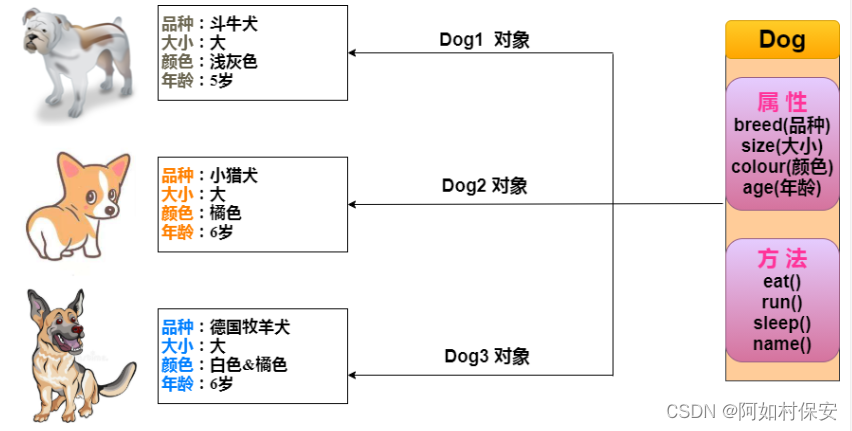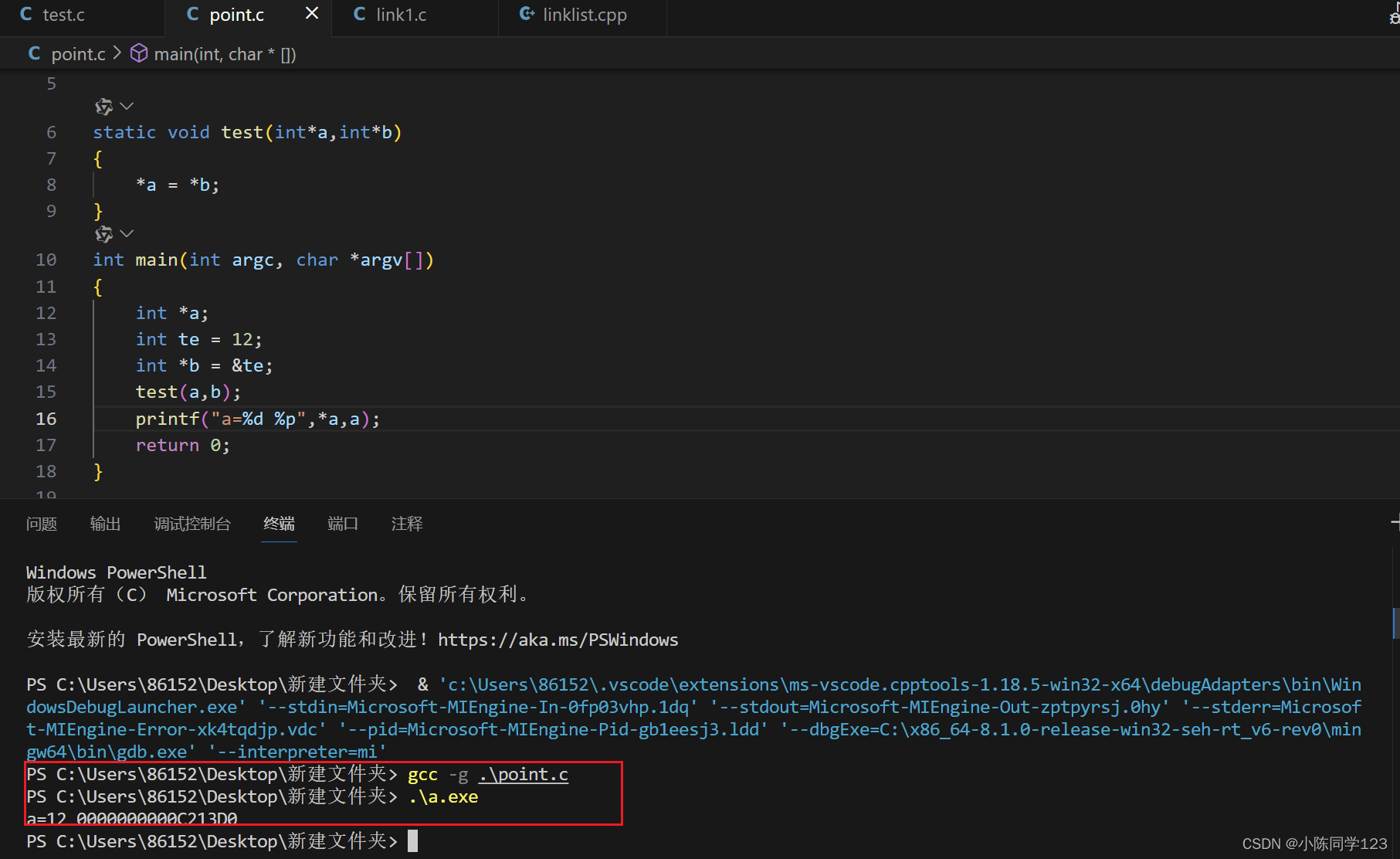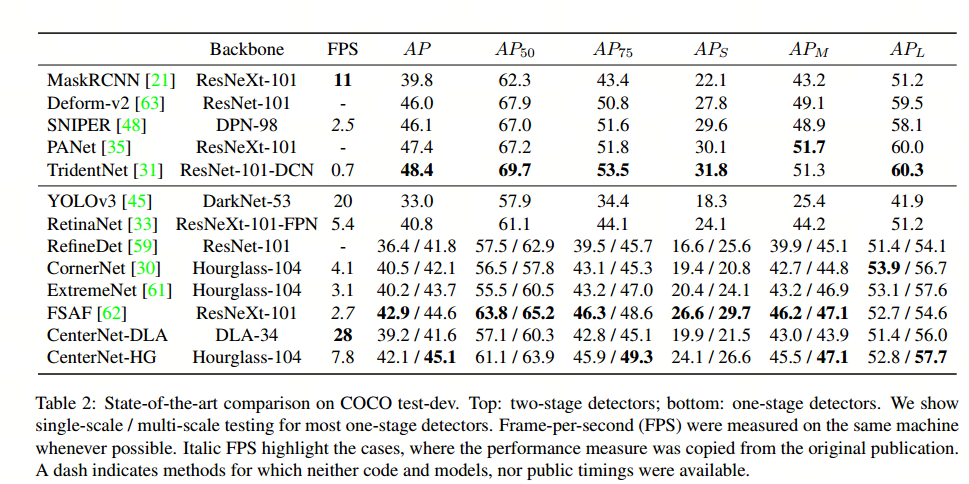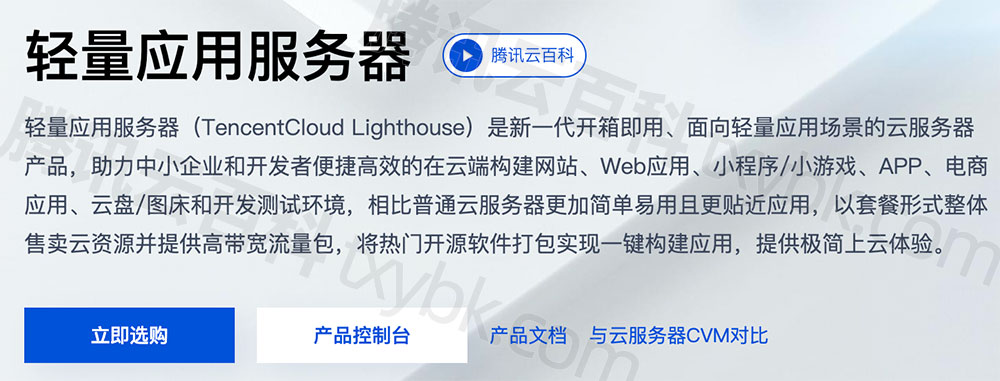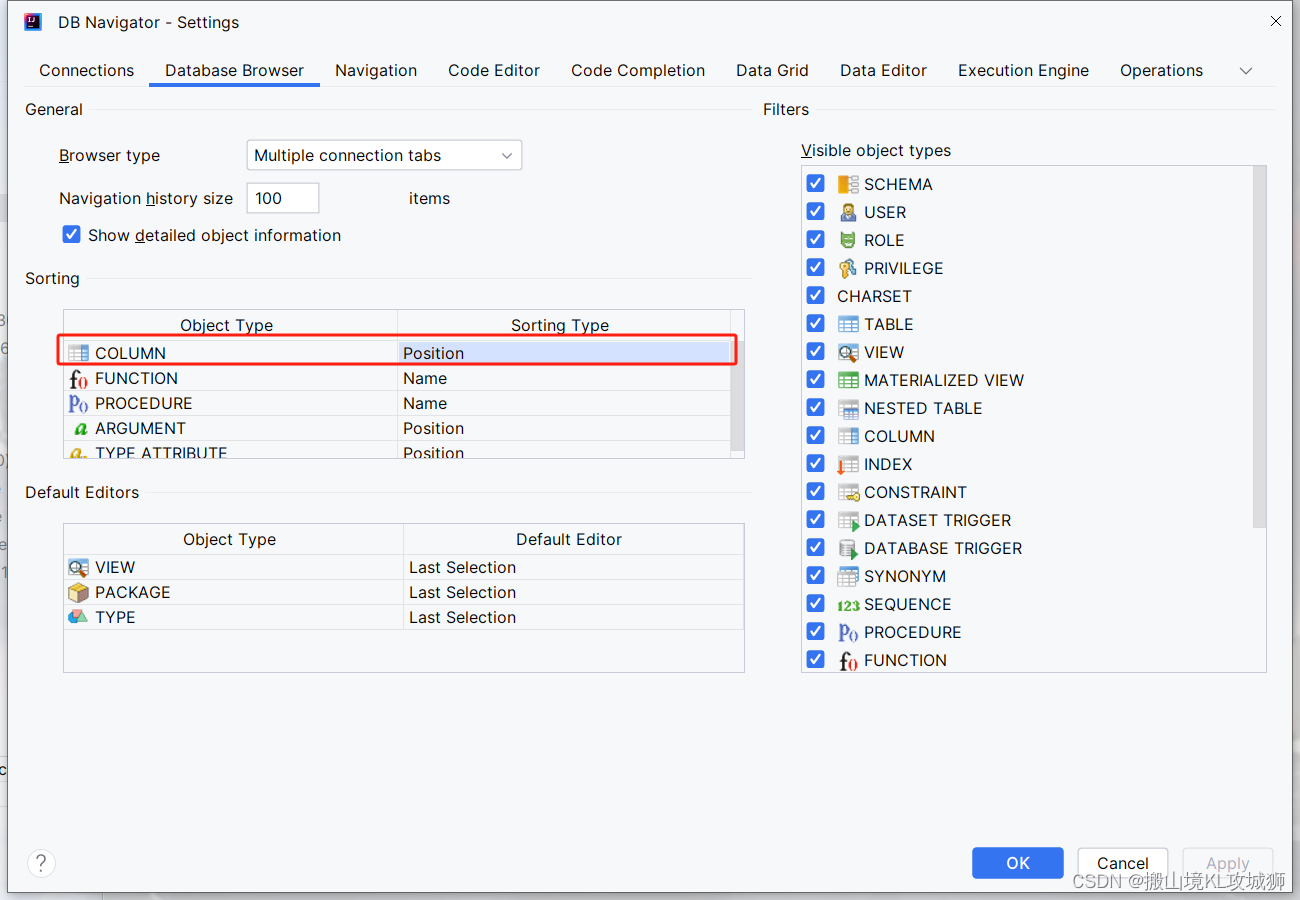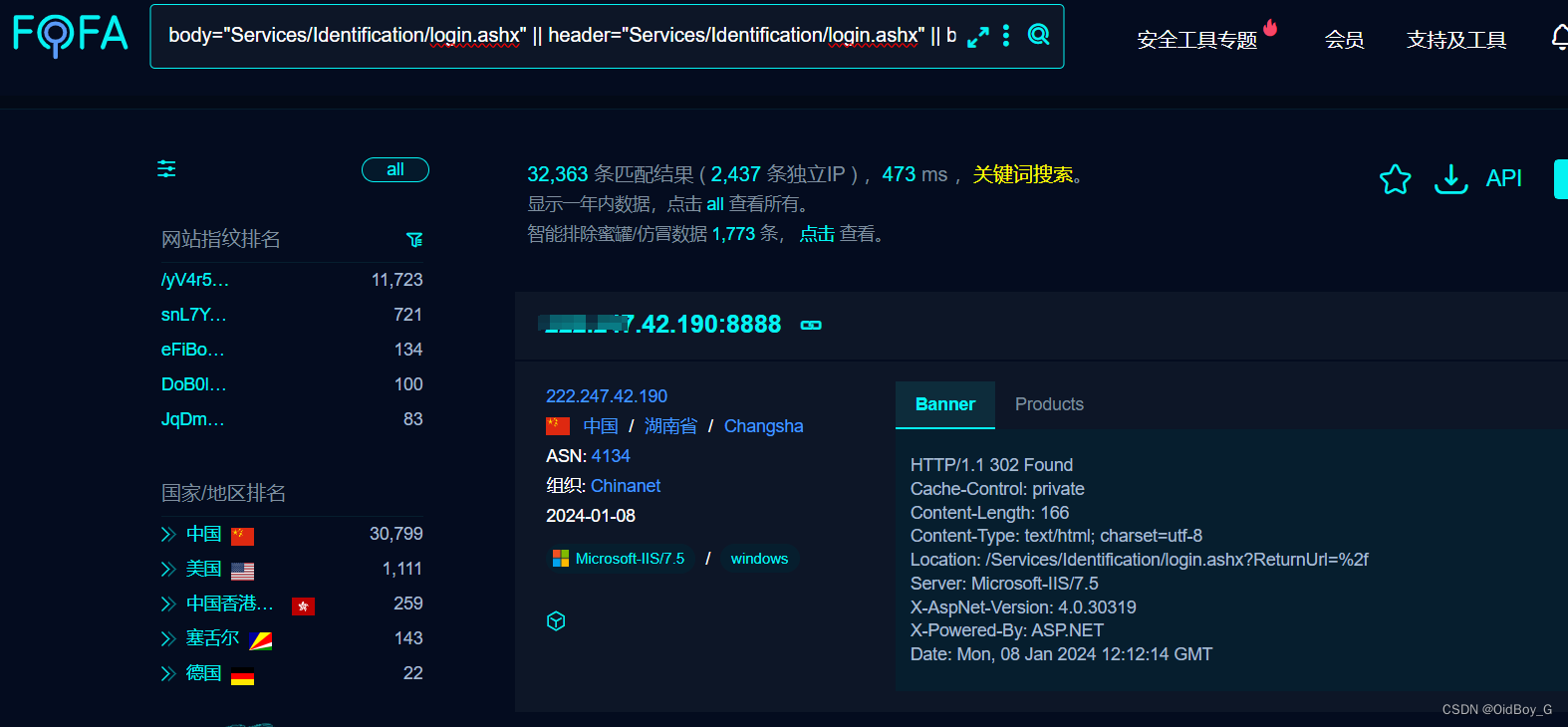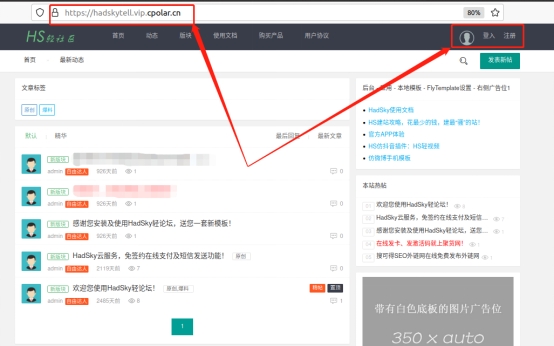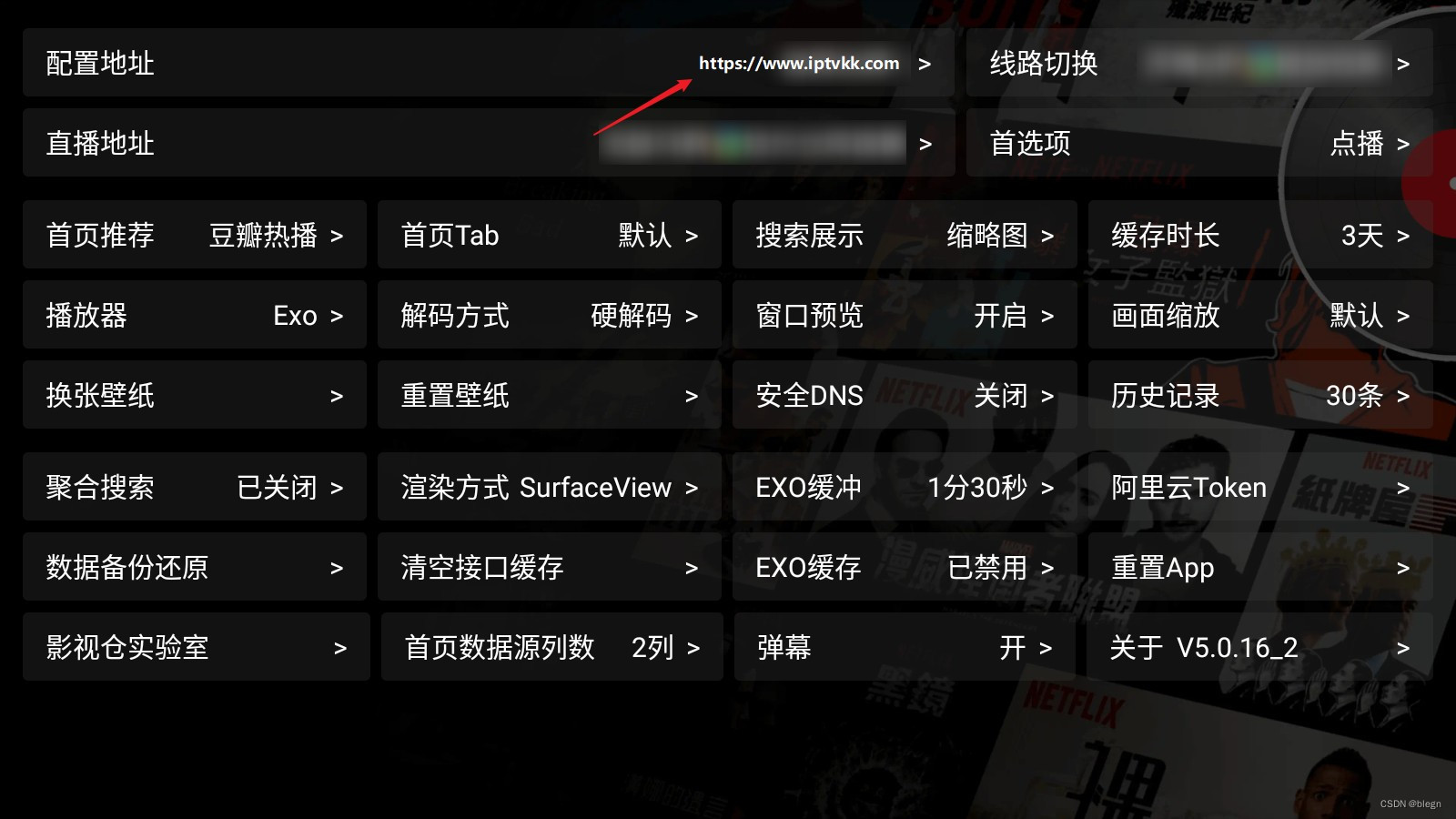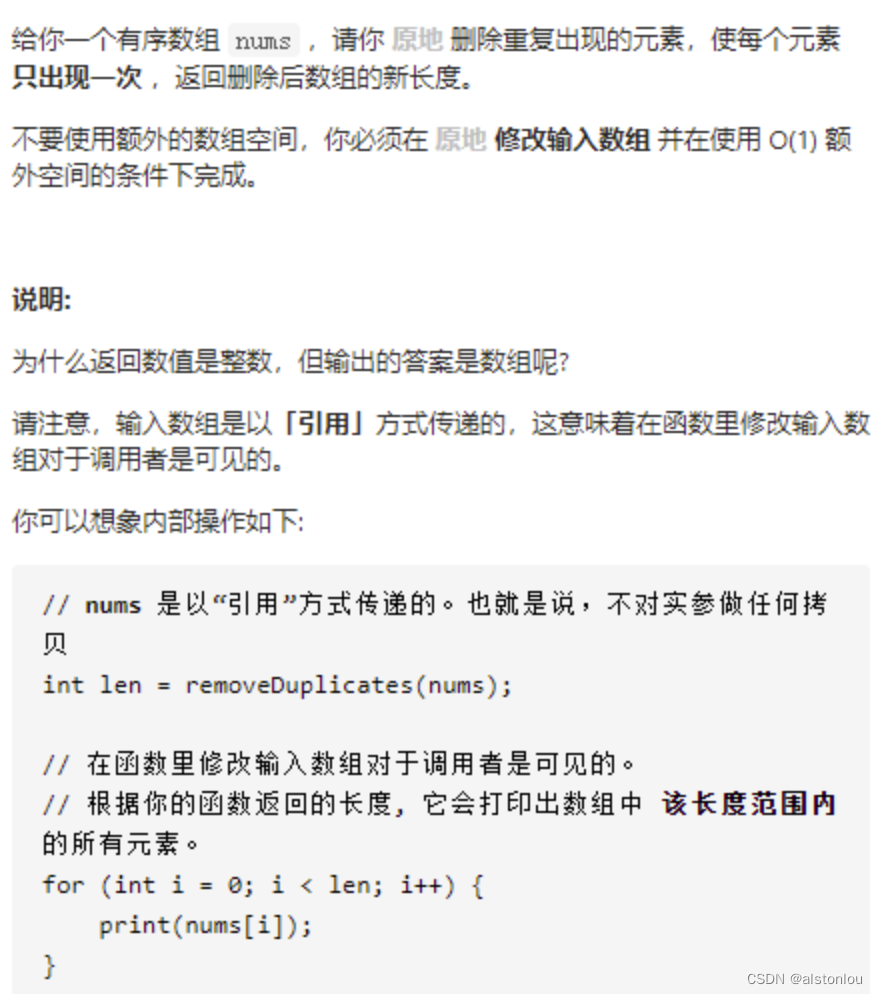规划网络拓扑
3 个 orderer 节点;组织 org1 , org1 下有两个 peer 节点, peer0 和 peer1; 组织 org2 , org2 下有两个 peer 节点, peer0 和 peer1;
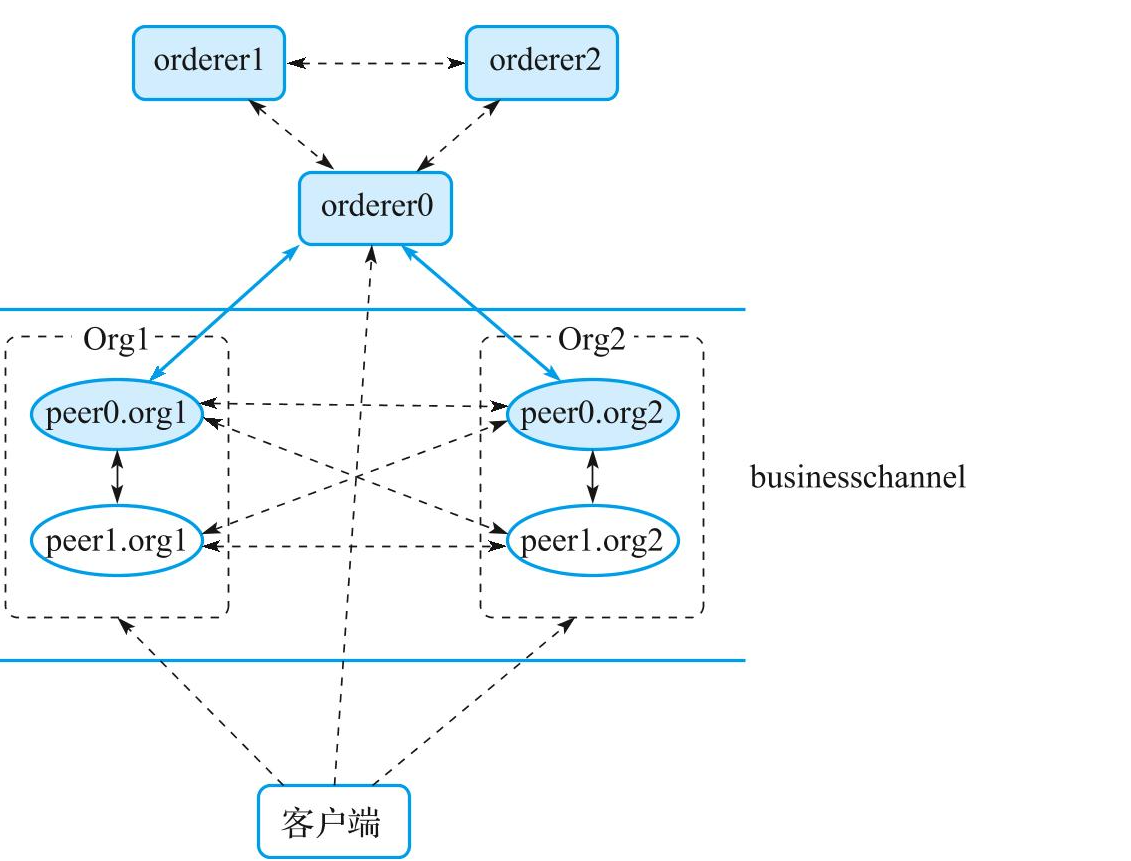
因为我只有 3 台虚拟机资源所以没法实现完全的多机部署,资源使用规划如下:
| 节点 | 宿主机 IP | hosts | 端口 |
|---|---|---|---|
| cli | 192.168.0.105 | N/A | N/A |
| orderer0 | 192.168.0.105 | orderer0.example.com | 7050 |
| orderer1 | 192.168.0.105 | orderer1.example.com | 8050 |
| orderer2 | 192.168.0.105 | orderer2.example.com | 9050 |
| org1-peer0 | 192.168.0.109 | peer0.org1.example.com | 7051 |
| org1-peer1 | 192.168.0.109 | peer1.org1.example.com | 8051 |
| org2-peer0 | 192.168.0.110 | peer0.org2.example.com | 7051 |
| org2-peer1 | 192.168.0.110 | peer1.org2.example.com | 8051 |
vim /etc/hosts
# 新增
192.168.0.105 orderer0.example.com
192.168.0.105 orderer1.example.com
192.168.0.105 orderer2.example.com
192.168.0.109 peer0.org1.example.com
192.168.0.109 peer1.org1.example.com
192.168.0.110 peer0.org2.example.com
192.168.0.110 peer1.org2.example.com
生成网络需要的身份文件
Fabric 项目还提供了
cryptogen工具来在本地生身份文件,这种方式需要提供一个crypto-config.yaml配置文件。
准备 crypto-config.yaml 配置文件
生成的文件内容如下:
./cryptogen showtemplate > ../crypto-config.yaml
# ---------------------------------------------------------------------------
# "OrdererOrgs" - Definition of organizations managing orderer nodes
# ---------------------------------------------------------------------------
OrdererOrgs:
# ---------------------------------------------------------------------------
# Orderer
# ---------------------------------------------------------------------------
- Name: Orderer
Domain: example.com
EnableNodeOUs: false
# ---------------------------------------------------------------------------
# "Specs" - See PeerOrgs below for complete description
# ---------------------------------------------------------------------------
Specs:
- Hostname: orderer
# ---------------------------------------------------------------------------
# "PeerOrgs" - Definition of organizations managing peer nodes
# ---------------------------------------------------------------------------
PeerOrgs:
# ---------------------------------------------------------------------------
# Org1
# ---------------------------------------------------------------------------
- Name: Org1
Domain: org1.example.com
EnableNodeOUs: false
# ---------------------------------------------------------------------------
# "CA"
# ---------------------------------------------------------------------------
# Uncomment this section to enable the explicit definition of the CA for this
# organization. This entry is a Spec. See "Specs" section below for details.
# ---------------------------------------------------------------------------
# CA:
# Hostname: ca # implicitly ca.org1.example.com
# Country: US
# Province: California
# Locality: San Francisco
# OrganizationalUnit: Hyperledger Fabric
# StreetAddress: address for org # default nil
# PostalCode: postalCode for org # default nil
# ---------------------------------------------------------------------------
# "Specs"
# ---------------------------------------------------------------------------
# Uncomment this section to enable the explicit definition of hosts in your
# configuration. Most users will want to use Template, below
#
# Specs is an array of Spec entries. Each Spec entry consists of two fields:
# - Hostname: (Required) The desired hostname, sans the domain.
# - CommonName: (Optional) Specifies the template or explicit override for
# the CN. By default, this is the template:
#
# "{{.Hostname}}.{{.Domain}}"
#
# which obtains its values from the Spec.Hostname and
# Org.Domain, respectively.
# - SANS: (Optional) Specifies one or more Subject Alternative Names
# to be set in the resulting x509. Accepts template
# variables {{.Hostname}}, {{.Domain}}, {{.CommonName}}. IP
# addresses provided here will be properly recognized. Other
# values will be taken as DNS names.
# NOTE: Two implicit entries are created for you:
# - {{ .CommonName }}
# - {{ .Hostname }}
# ---------------------------------------------------------------------------
# Specs:
# - Hostname: foo # implicitly "foo.org1.example.com"
# CommonName: foo27.org5.example.com # overrides Hostname-based FQDN set above
# SANS:
# - "bar.{{.Domain}}"
# - "altfoo.{{.Domain}}"
# - "{{.Hostname}}.org6.net"
# - 172.16.10.31
# - Hostname: bar
# - Hostname: baz
# ---------------------------------------------------------------------------
# "Template"
# ---------------------------------------------------------------------------
# Allows for the definition of 1 or more hosts that are created sequentially
# from a template. By default, this looks like "peer%d" from 0 to Count-1.
# You may override the number of nodes (Count), the starting index (Start)
# or the template used to construct the name (Hostname).
#
# Note: Template and Specs are not mutually exclusive. You may define both
# sections and the aggregate nodes will be created for you. Take care with
# name collisions
# ---------------------------------------------------------------------------
Template:
Count: 1
# Start: 5
# Hostname: {{.Prefix}}{{.Index}} # default
# SANS:
# - "{{.Hostname}}.alt.{{.Domain}}"
# ---------------------------------------------------------------------------
# "Users"
# ---------------------------------------------------------------------------
# Count: The number of user accounts _in addition_ to Admin
# ---------------------------------------------------------------------------
Users:
Count: 1
# ---------------------------------------------------------------------------
# Org2: See "Org1" for full specification
# ---------------------------------------------------------------------------
- Name: Org2
Domain: org2.example.com
EnableNodeOUs: false
Template:
Count: 1
Users:
Count: 1
按照规划的网络拓扑对 crypto-config.yaml 进行修改:
# ---------------------------------------------------------------------------
# "OrdererOrgs" - Definition of organizations managing orderer nodes
# ---------------------------------------------------------------------------
OrdererOrgs:
# ---------------------------------------------------------------------------
# Orderer
# ---------------------------------------------------------------------------
- Name: Orderer
Domain: example.com
EnableNodeOUs: true
# ---------------------------------------------------------------------------
# "Specs" - See PeerOrgs below for complete description
# ---------------------------------------------------------------------------
Specs:
- Hostname: orderer0
- Hostname: orderer1
- Hostname: orderer2
SANS:
- "*"
- "192.168.0.105"
# ---------------------------------------------------------------------------
# "PeerOrgs" - Definition of organizations managing peer nodes
# ---------------------------------------------------------------------------
PeerOrgs:
# ---------------------------------------------------------------------------
# Org1
# ---------------------------------------------------------------------------
- Name: Org1
Domain: org1.example.com
EnableNodeOUs: true
Template:
Count: 2
# Start: 5
# Hostname: {{.Prefix}}{{.Index}} # default
# SANS:
# - "{{.Hostname}}.alt.{{.Domain}}"
SANS:
- "*"
- "192.168.0.109"
# ---------------------------------------------------------------------------
# "Users"
# ---------------------------------------------------------------------------
# Count: The number of user accounts _in addition_ to Admin
# ---------------------------------------------------------------------------
Users:
Count: 1
# ---------------------------------------------------------------------------
# Org2: See "Org1" for full specification
# ---------------------------------------------------------------------------
- Name: Org2
Domain: org2.example.com
EnableNodeOUs: false
Template:
Count: 2
SANS:
- "*"
- "192.168.0.110"
Users:
Count: 1
生成组织身份文件
根据 crypto-config.yaml 配置文件生成组织身份文件并保存在 ../crypto-config 目录下。
./cryptogen generate --config=../crypto-config.yaml --output ../crypto-config
用户修改配置后,还可以通过 extend 子命令来更新 crypto-config 目录:
./cryptogen extend --config=../crypto-config.yaml --input ../crypto-config
得到的 crypto-config 目录结构如下:
crypto-config
├── ordererOrganizations
│ └── example.com
│ ├── ca
│ │ ├── ca.example.com-cert.pem
│ │ └── priv_sk
│ ├── msp
│ │ ├── admincerts
│ │ ├── cacerts
│ │ │ └── ca.example.com-cert.pem
│ │ ├── config.yaml
│ │ └── tlscacerts
│ │ └── tlsca.example.com-cert.pem
│ ├── orderers
│ │ ├── orderer0.example.com
│ │ │ ├── msp
│ │ │ │ ├── admincerts
│ │ │ │ ├── cacerts
│ │ │ │ │ └── ca.example.com-cert.pem
│ │ │ │ ├── config.yaml
│ │ │ │ ├── keystore
│ │ │ │ │ └── priv_sk
│ │ │ │ ├── signcerts
│ │ │ │ │ └── orderer0.example.com-cert.pem
│ │ │ │ └── tlscacerts
│ │ │ │ └── tlsca.example.com-cert.pem
│ │ │ └── tls
│ │ │ ├── ca.crt
│ │ │ ├── server.crt
│ │ │ └── server.key
│ │ ├── orderer1.example.com
│ │ │ ├── msp
│ │ │ │ ├── admincerts
│ │ │ │ ├── cacerts
│ │ │ │ │ └── ca.example.com-cert.pem
│ │ │ │ ├── config.yaml
│ │ │ │ ├── keystore
│ │ │ │ │ └── priv_sk
│ │ │ │ ├── signcerts
│ │ │ │ │ └── orderer1.example.com-cert.pem
│ │ │ │ └── tlscacerts
│ │ │ │ └── tlsca.example.com-cert.pem
│ │ │ └── tls
│ │ │ ├── ca.crt
│ │ │ ├── server.crt
│ │ │ └── server.key
│ │ └── orderer2.example.com
│ │ ├── msp
│ │ │ ├── admincerts
│ │ │ ├── cacerts
│ │ │ │ └── ca.example.com-cert.pem
│ │ │ ├── config.yaml
│ │ │ ├── keystore
│ │ │ │ └── priv_sk
│ │ │ ├── signcerts
│ │ │ │ └── orderer2.example.com-cert.pem
│ │ │ └── tlscacerts
│ │ │ └── tlsca.example.com-cert.pem
│ │ └── tls
│ │ ├── ca.crt
│ │ ├── server.crt
│ │ └── server.key
│ ├── tlsca
│ │ ├── priv_sk
│ │ └── tlsca.example.com-cert.pem
│ └── users
│ └── Admin@example.com
│ ├── msp
│ │ ├── admincerts
│ │ ├── cacerts
│ │ │ └── ca.example.com-cert.pem
│ │ ├── config.yaml
│ │ ├── keystore
│ │ │ └── priv_sk
│ │ ├── signcerts
│ │ │ └── Admin@example.com-cert.pem
│ │ └── tlscacerts
│ │ └── tlsca.example.com-cert.pem
│ └── tls
│ ├── ca.crt
│ ├── client.crt
│ └── client.key
└── peerOrganizations
├── org1.example.com
│ ├── ca
│ │ ├── ca.org1.example.com-cert.pem
│ │ └── priv_sk
│ ├── msp
│ │ ├── admincerts
│ │ ├── cacerts
│ │ │ └── ca.org1.example.com-cert.pem
│ │ ├── config.yaml
│ │ └── tlscacerts
│ │ └── tlsca.org1.example.com-cert.pem
│ ├── peers
│ │ ├── peer0.org1.example.com
│ │ │ ├── msp
│ │ │ │ ├── admincerts
│ │ │ │ ├── cacerts
│ │ │ │ │ └── ca.org1.example.com-cert.pem
│ │ │ │ ├── config.yaml
│ │ │ │ ├── keystore
│ │ │ │ │ └── priv_sk
│ │ │ │ ├── signcerts
│ │ │ │ │ └── peer0.org1.example.com-cert.pem
│ │ │ │ └── tlscacerts
│ │ │ │ └── tlsca.org1.example.com-cert.pem
│ │ │ └── tls
│ │ │ ├── ca.crt
│ │ │ ├── server.crt
│ │ │ └── server.key
│ │ └── peer1.org1.example.com
│ │ ├── msp
│ │ │ ├── admincerts
│ │ │ ├── cacerts
│ │ │ │ └── ca.org1.example.com-cert.pem
│ │ │ ├── config.yaml
│ │ │ ├── keystore
│ │ │ │ └── priv_sk
│ │ │ ├── signcerts
│ │ │ │ └── peer1.org1.example.com-cert.pem
│ │ │ └── tlscacerts
│ │ │ └── tlsca.org1.example.com-cert.pem
│ │ └── tls
│ │ ├── ca.crt
│ │ ├── server.crt
│ │ └── server.key
│ ├── tlsca
│ │ ├── priv_sk
│ │ └── tlsca.org1.example.com-cert.pem
│ └── users
│ ├── Admin@org1.example.com
│ │ ├── msp
│ │ │ ├── admincerts
│ │ │ ├── cacerts
│ │ │ │ └── ca.org1.example.com-cert.pem
│ │ │ ├── config.yaml
│ │ │ ├── keystore
│ │ │ │ └── priv_sk
│ │ │ ├── signcerts
│ │ │ │ └── Admin@org1.example.com-cert.pem
│ │ │ └── tlscacerts
│ │ │ └── tlsca.org1.example.com-cert.pem
│ │ └── tls
│ │ ├── ca.crt
│ │ ├── client.crt
│ │ └── client.key
│ └── User1@org1.example.com
│ ├── msp
│ │ ├── admincerts
│ │ ├── cacerts
│ │ │ └── ca.org1.example.com-cert.pem
│ │ ├── config.yaml
│ │ ├── keystore
│ │ │ └── priv_sk
│ │ ├── signcerts
│ │ │ └── User1@org1.example.com-cert.pem
│ │ └── tlscacerts
│ │ └── tlsca.org1.example.com-cert.pem
│ └── tls
│ ├── ca.crt
│ ├── client.crt
│ └── client.key
└── org2.example.com
├── ca
│ ├── ca.org2.example.com-cert.pem
│ └── priv_sk
├── msp
│ ├── admincerts
│ │ ├── Admin@org2.example.com-cert.pem
│ │ └── ca.org2.example.com-cert.pem
│ ├── cacerts
│ │ └── ca.org2.example.com-cert.pem
│ └── tlscacerts
│ └── tlsca.org2.example.com-cert.pem
├── peers
│ ├── peer0.org2.example.com
│ │ ├── msp
│ │ │ ├── admincerts
│ │ │ │ └── Admin@org2.example.com-cert.pem
│ │ │ ├── cacerts
│ │ │ │ └── ca.org2.example.com-cert.pem
│ │ │ ├── keystore
│ │ │ │ └── priv_sk
│ │ │ ├── signcerts
│ │ │ │ └── peer0.org2.example.com-cert.pem
│ │ │ └── tlscacerts
│ │ │ └── tlsca.org2.example.com-cert.pem
│ │ └── tls
│ │ ├── ca.crt
│ │ ├── server.crt
│ │ └── server.key
│ └── peer1.org2.example.com
│ ├── msp
│ │ ├── admincerts
│ │ │ └── Admin@org2.example.com-cert.pem
│ │ ├── cacerts
│ │ │ └── ca.org2.example.com-cert.pem
│ │ ├── keystore
│ │ │ └── priv_sk
│ │ ├── signcerts
│ │ │ └── peer1.org2.example.com-cert.pem
│ │ └── tlscacerts
│ │ └── tlsca.org2.example.com-cert.pem
│ └── tls
│ ├── ca.crt
│ ├── server.crt
│ └── server.key
├── tlsca
│ ├── priv_sk
│ └── tlsca.org2.example.com-cert.pem
└── users
├── Admin@org2.example.com
│ ├── msp
│ │ ├── admincerts
│ │ │ └── Admin@org2.example.com-cert.pem
│ │ ├── cacerts
│ │ │ └── ca.org2.example.com-cert.pem
│ │ ├── keystore
│ │ │ └── priv_sk
│ │ ├── signcerts
│ │ │ └── Admin@org2.example.com-cert.pem
│ │ └── tlscacerts
│ │ └── tlsca.org2.example.com-cert.pem
│ └── tls
│ ├── ca.crt
│ ├── client.crt
│ └── client.key
└── User1@org2.example.com
├── msp
│ ├── admincerts
│ │ └── User1@org2.example.com-cert.pem
│ ├── cacerts
│ │ └── ca.org2.example.com-cert.pem
│ ├── keystore
│ │ └── priv_sk
│ ├── signcerts
│ │ └── User1@org2.example.com-cert.pem
│ └── tlscacerts
│ └── tlsca.org2.example.com-cert.pem
└── tls
├── ca.crt
├── client.crt
└── client.key
将 crypto-config 目录拷贝到另外两台机器上:
scp -r crypto-config root@192.168.0.109:/usr/project/fabric-docker-multiple/crypto-config
scp -r crypto-config root@192.168.0.110:/usr/project/fabric-docker-multiple/crypto-config
生成系统通道初始区块
可以使用
configtxgen工具生成,生成过程依赖conf igtx.yaml配置文件,configtx.yaml配置文件定义了整个网络中的相关配置和拓扑结构信息 。
编辑 configtx.yaml :
# Copyright IBM Corp. All Rights Reserved.
#
# SPDX-License-Identifier: Apache-2.0
#
---
################################################################################
#
# ORGANIZATIONS
#
# This section defines the organizational identities that can be referenced
# in the configuration profiles.
#
################################################################################
Organizations:
# SampleOrg defines an MSP using the sampleconfig. It should never be used
# in production but may be used as a template for other definitions.
- &OrdererOrg
# Name is the key by which this org will be referenced in channel
# configuration transactions.
# Name can include alphanumeric characters as well as dots and dashes.
Name: OrdererOrg
# SkipAsForeign can be set to true for org definitions which are to be
# inherited from the orderer system channel during channel creation. This
# is especially useful when an admin of a single org without access to the
# MSP directories of the other orgs wishes to create a channel. Note
# this property must always be set to false for orgs included in block
# creation.
SkipAsForeign: false
# ID is the key by which this org's MSP definition will be referenced.
# ID can include alphanumeric characters as well as dots and dashes.
ID: OrdererMSP
# MSPDir is the filesystem path which contains the MSP configuration.
MSPDir: /usr/project/fabric-docker-multiple/crypto-config/ordererOrganizations/example.com/msp
# Policies defines the set of policies at this level of the config tree
# For organization policies, their canonical path is usually
# /Channel/<Application|Orderer>/<OrgName>/<PolicyName>
Policies:
Readers:
Type: Signature
Rule: "OR('OrdererMSP.member')"
# If your MSP is configured with the new NodeOUs, you might
# want to use a more specific rule like the following:
# Rule: "OR('SampleOrg.admin', 'SampleOrg.peer', 'SampleOrg.client')"
Writers:
Type: Signature
Rule: "OR('OrdererMSP.member')"
# If your MSP is configured with the new NodeOUs, you might
# want to use a more specific rule like the following:
# Rule: "OR('SampleOrg.admin', 'SampleOrg.client')"
Admins:
Type: Signature
Rule: "OR('OrdererMSP.admin')"
Endorsement:
Type: Signature
Rule: "OR('OrdererMSP.member')"
# OrdererEndpoints is a list of all orderers this org runs which clients
# and peers may to connect to to push transactions and receive blocks respectively.
OrdererEndpoints:
- "orderer0.example.com:7050"
- "orderer1.example.com:8050"
- "orderer2.example.com:9050"
# AnchorPeers defines the location of peers which can be used for
# cross-org gossip communication.
#
# NOTE: this value should only be set when using the deprecated
# `configtxgen --outputAnchorPeersUpdate` command. It is recommended
# to instead use the channel configuration update process to set the
# anchor peers for each organization.
#AnchorPeers:
# - Host: 127.0.0.1
# Port: 7051
- &Org1
Name: Org1MSP
ID: Org1MSP
MSPDir: /usr/project/fabric-docker-multiple/crypto-config/peerOrganizations/org1.example.com/msp
Policies:
Readers:
Type: Signature
Rule: "OR('Org1MSP.admin', 'Org1MSP.peer', 'Org1MSP.client')"
Writers:
Type: Signature
Rule: "OR('Org1MSP.admin', 'Org1MSP.client')"
Admins:
Type: Signature
Rule: "OR('Org1MSP.admin')"
Endorsement:
Type: Signature
Rule: "OR('Org1MSP.peer')"
AnchorPeers:
- Host: peer0.org1.example.com
Port: 7051
- &Org2
Name: Org2MSP
ID: Org2MSP
MSPDir: /usr/project/fabric-docker-multiple/crypto-config/peerOrganizations/org2.example.com/msp
Policies:
Readers:
Type: Signature
Rule: "OR('Org2MSP.admin', 'Org2MSP.peer', 'Org2MSP.client')"
Writers:
Type: Signature
Rule: "OR('Org2MSP.admin', 'Org2MSP.client')"
Admins:
Type: Signature
Rule: "OR('Org2MSP.admin')"
Endorsement:
Type: Signature
Rule: "OR('Org2MSP.peer')"
AnchorPeers:
- Host: peer0.org2.example.com
Port: 7051
################################################################################
#
# CAPABILITIES
#
# This section defines the capabilities of fabric network. This is a new
# concept as of v1.1.0 and should not be utilized in mixed networks with
# v1.0.x peers and orderers. Capabilities define features which must be
# present in a fabric binary for that binary to safely participate in the
# fabric network. For instance, if a new MSP type is added, newer binaries
# might recognize and validate the signatures from this type, while older
# binaries without this support would be unable to validate those
# transactions. This could lead to different versions of the fabric binaries
# having different world states. Instead, defining a capability for a channel
# informs those binaries without this capability that they must cease
# processing transactions until they have been upgraded. For v1.0.x if any
# capabilities are defined (including a map with all capabilities turned off)
# then the v1.0.x peer will deliberately crash.
#
################################################################################
Capabilities:
# Channel capabilities apply to both the orderers and the peers and must be
# supported by both.
# Set the value of the capability to true to require it.
Channel: &ChannelCapabilities
# V2.0 for Channel is a catchall flag for behavior which has been
# determined to be desired for all orderers and peers running at the v2.0.0
# level, but which would be incompatible with orderers and peers from
# prior releases.
# Prior to enabling V2.0 channel capabilities, ensure that all
# orderers and peers on a channel are at v2.0.0 or later.
V2_0: true
# Orderer capabilities apply only to the orderers, and may be safely
# used with prior release peers.
# Set the value of the capability to true to require it.
Orderer: &OrdererCapabilities
# V1.1 for Orderer is a catchall flag for behavior which has been
# determined to be desired for all orderers running at the v1.1.x
# level, but which would be incompatible with orderers from prior releases.
# Prior to enabling V2.0 orderer capabilities, ensure that all
# orderers on a channel are at v2.0.0 or later.
V2_0: true
# Application capabilities apply only to the peer network, and may be safely
# used with prior release orderers.
# Set the value of the capability to true to require it.
Application: &ApplicationCapabilities
# V2.0 for Application enables the new non-backwards compatible
# features and fixes of fabric v2.0.
# Prior to enabling V2.0 orderer capabilities, ensure that all
# orderers on a channel are at v2.0.0 or later.
V2_0: true
################################################################################
#
# APPLICATION
#
# This section defines the values to encode into a config transaction or
# genesis block for application-related parameters.
#
################################################################################
Application: &ApplicationDefaults
ACLs: &ACLsDefault
# This section provides defaults for policies for various resources
# in the system. These "resources" could be functions on system chaincodes
# (e.g., "GetBlockByNumber" on the "qscc" system chaincode) or other resources
# (e.g.,who can receive Block events). This section does NOT specify the resource's
# definition or API, but just the ACL policy for it.
#
# Users can override these defaults with their own policy mapping by defining the
# mapping under ACLs in their channel definition
#---New Lifecycle System Chaincode (_lifecycle) function to policy mapping for access control--#
# ACL policy for _lifecycle's "CheckCommitReadiness" function
_lifecycle/CheckCommitReadiness: /Channel/Application/Writers
# ACL policy for _lifecycle's "CommitChaincodeDefinition" function
_lifecycle/CommitChaincodeDefinition: /Channel/Application/Writers
# ACL policy for _lifecycle's "QueryChaincodeDefinition" function
_lifecycle/QueryChaincodeDefinition: /Channel/Application/Writers
# ACL policy for _lifecycle's "QueryChaincodeDefinitions" function
_lifecycle/QueryChaincodeDefinitions: /Channel/Application/Writers
#---Lifecycle System Chaincode (lscc) function to policy mapping for access control---#
# ACL policy for lscc's "getid" function
lscc/ChaincodeExists: /Channel/Application/Readers
# ACL policy for lscc's "getdepspec" function
lscc/GetDeploymentSpec: /Channel/Application/Readers
# ACL policy for lscc's "getccdata" function
lscc/GetChaincodeData: /Channel/Application/Readers
# ACL Policy for lscc's "getchaincodes" function
lscc/GetInstantiatedChaincodes: /Channel/Application/Readers
#---Query System Chaincode (qscc) function to policy mapping for access control---#
# ACL policy for qscc's "GetChainInfo" function
qscc/GetChainInfo: /Channel/Application/Readers
# ACL policy for qscc's "GetBlockByNumber" function
qscc/GetBlockByNumber: /Channel/Application/Readers
# ACL policy for qscc's "GetBlockByHash" function
qscc/GetBlockByHash: /Channel/Application/Readers
# ACL policy for qscc's "GetTransactionByID" function
qscc/GetTransactionByID: /Channel/Application/Readers
# ACL policy for qscc's "GetBlockByTxID" function
qscc/GetBlockByTxID: /Channel/Application/Readers
#---Configuration System Chaincode (cscc) function to policy mapping for access control---#
# ACL policy for cscc's "GetConfigBlock" function
cscc/GetConfigBlock: /Channel/Application/Readers
# ACL policy for cscc's "GetChannelConfig" function
cscc/GetChannelConfig: /Channel/Application/Readers
#---Miscellaneous peer function to policy mapping for access control---#
# ACL policy for invoking chaincodes on peer
peer/Propose: /Channel/Application/Writers
# ACL policy for chaincode to chaincode invocation
peer/ChaincodeToChaincode: /Channel/Application/Writers
#---Events resource to policy mapping for access control###---#
# ACL policy for sending block events
event/Block: /Channel/Application/Readers
# ACL policy for sending filtered block events
event/FilteredBlock: /Channel/Application/Readers
# Organizations lists the orgs participating on the application side of the
# network.
Organizations:
# Policies defines the set of policies at this level of the config tree
# For Application policies, their canonical path is
# /Channel/Application/<PolicyName>
Policies: &ApplicationDefaultPolicies
LifecycleEndorsement:
Type: ImplicitMeta
Rule: "MAJORITY Endorsement"
Endorsement:
Type: ImplicitMeta
Rule: "MAJORITY Endorsement"
Readers:
Type: ImplicitMeta
Rule: "ANY Readers"
Writers:
Type: ImplicitMeta
Rule: "ANY Writers"
Admins:
Type: ImplicitMeta
Rule: "MAJORITY Admins"
# Capabilities describes the application level capabilities, see the
# dedicated Capabilities section elsewhere in this file for a full
# description
Capabilities:
<<: *ApplicationCapabilities
################################################################################
#
# ORDERER
#
# This section defines the values to encode into a config transaction or
# genesis block for orderer related parameters.
#
################################################################################
Orderer: &OrdererDefaults
# Orderer Type: The orderer implementation to start.
# Available types are "solo", "kafka" and "etcdraft".
OrdererType: etcdraft
# Addresses used to be the list of orderer addresses that clients and peers
# could connect to. However, this does not allow clients to associate orderer
# addresses and orderer organizations which can be useful for things such
# as TLS validation. The preferred way to specify orderer addresses is now
# to include the OrdererEndpoints item in your org definition
Addresses:
- orderer0.example.com:7050
- orderer1.example.com:8050
- orderer2.example.com:9050
# Batch Timeout: The amount of time to wait before creating a batch.
BatchTimeout: 2s
# Batch Size: Controls the number of messages batched into a block.
# The orderer views messages opaquely, but typically, messages may
# be considered to be Fabric transactions. The 'batch' is the group
# of messages in the 'data' field of the block. Blocks will be a few kb
# larger than the batch size, when signatures, hashes, and other metadata
# is applied.
BatchSize:
# Max Message Count: The maximum number of messages to permit in a
# batch. No block will contain more than this number of messages.
MaxMessageCount: 500
# Absolute Max Bytes: The absolute maximum number of bytes allowed for
# the serialized messages in a batch. The maximum block size is this value
# plus the size of the associated metadata (usually a few KB depending
# upon the size of the signing identities). Any transaction larger than
# this value will be rejected by ordering.
# It is recommended not to exceed 49 MB, given the default grpc max message size of 100 MB
# configured on orderer and peer nodes (and allowing for message expansion during communication).
AbsoluteMaxBytes: 10 MB
# Preferred Max Bytes: The preferred maximum number of bytes allowed
# for the serialized messages in a batch. Roughly, this field may be considered
# the best effort maximum size of a batch. A batch will fill with messages
# until this size is reached (or the max message count, or batch timeout is
# exceeded). If adding a new message to the batch would cause the batch to
# exceed the preferred max bytes, then the current batch is closed and written
# to a block, and a new batch containing the new message is created. If a
# message larger than the preferred max bytes is received, then its batch
# will contain only that message. Because messages may be larger than
# preferred max bytes (up to AbsoluteMaxBytes), some batches may exceed
# the preferred max bytes, but will always contain exactly one transaction.
PreferredMaxBytes: 2 MB
# Max Channels is the maximum number of channels to allow on the ordering
# network. When set to 0, this implies no maximum number of channels.
MaxChannels: 0
Kafka:
# Brokers: A list of Kafka brokers to which the orderer connects. Edit
# this list to identify the brokers of the ordering service.
# NOTE: Use IP:port notation.
Brokers:
- kafka0:9092
- kafka1:9092
- kafka2:9092
# EtcdRaft defines configuration which must be set when the "etcdraft"
# orderertype is chosen.
EtcdRaft:
# The set of Raft replicas for this network. For the etcd/raft-based
# implementation, we expect every replica to also be an OSN. Therefore,
# a subset of the host:port items enumerated in this list should be
# replicated under the Orderer.Addresses key above.
Consenters:
- Host: orderer0.example.com
Port: 7050
ClientTLSCert: /usr/project/fabric-docker-multiple/crypto-config/ordererOrganizations/example.com/orderers/orderer0.example.com/tls/server.crt
ServerTLSCert: /usr/project/fabric-docker-multiple/crypto-config/ordererOrganizations/example.com/orderers/orderer0.example.com/tls/server.crt
- Host: orderer1.example.com
Port: 8050
ClientTLSCert: /usr/project/fabric-docker-multiple/crypto-config/ordererOrganizations/example.com/orderers/orderer1.example.com/tls/server.crt
ServerTLSCert: /usr/project/fabric-docker-multiple/crypto-config/ordererOrganizations/example.com/orderers/orderer1.example.com/tls/server.crt
- Host: orderer2.example.com
Port: 9050
ClientTLSCert: /usr/project/fabric-docker-multiple/crypto-config/ordererOrganizations/example.com/orderers/orderer2.example.com/tls/server.crt
ServerTLSCert: /usr/project/fabric-docker-multiple/crypto-config/ordererOrganizations/example.com/orderers/orderer2.example.com/tls/server.crt
# Options to be specified for all the etcd/raft nodes. The values here
# are the defaults for all new channels and can be modified on a
# per-channel basis via configuration updates.
Options:
# TickInterval is the time interval between two Node.Tick invocations.
TickInterval: 500ms
# ElectionTick is the number of Node.Tick invocations that must pass
# between elections. That is, if a follower does not receive any
# message from the leader of current term before ElectionTick has
# elapsed, it will become candidate and start an election.
# ElectionTick must be greater than HeartbeatTick.
ElectionTick: 10
# HeartbeatTick is the number of Node.Tick invocations that must
# pass between heartbeats. That is, a leader sends heartbeat
# messages to maintain its leadership every HeartbeatTick ticks.
HeartbeatTick: 1
# MaxInflightBlocks limits the max number of in-flight append messages
# during optimistic replication phase.
MaxInflightBlocks: 5
# SnapshotIntervalSize defines number of bytes per which a snapshot is taken
SnapshotIntervalSize: 16 MB
# Organizations lists the orgs participating on the orderer side of the
# network.
Organizations:
# Policies defines the set of policies at this level of the config tree
# For Orderer policies, their canonical path is
# /Channel/Orderer/<PolicyName>
Policies:
Readers:
Type: ImplicitMeta
Rule: "ANY Readers"
Writers:
Type: ImplicitMeta
Rule: "ANY Writers"
Admins:
Type: ImplicitMeta
Rule: "MAJORITY Admins"
# BlockValidation specifies what signatures must be included in the block
# from the orderer for the peer to validate it.
BlockValidation:
Type: ImplicitMeta
Rule: "ANY Writers"
# Capabilities describes the orderer level capabilities, see the
# dedicated Capabilities section elsewhere in this file for a full
# description
Capabilities:
<<: *OrdererCapabilities
################################################################################
#
# CHANNEL
#
# This section defines the values to encode into a config transaction or
# genesis block for channel related parameters.
#
################################################################################
Channel: &ChannelDefaults
# Policies defines the set of policies at this level of the config tree
# For Channel policies, their canonical path is
# /Channel/<PolicyName>
Policies:
# Who may invoke the 'Deliver' API
Readers:
Type: ImplicitMeta
Rule: "ANY Readers"
# Who may invoke the 'Broadcast' API
Writers:
Type: ImplicitMeta
Rule: "ANY Writers"
# By default, who may modify elements at this config level
Admins:
Type: ImplicitMeta
Rule: "MAJORITY Admins"
# Capabilities describes the channel level capabilities, see the
# dedicated Capabilities section elsewhere in this file for a full
# description
Capabilities:
<<: *ChannelCapabilities
################################################################################
#
# PROFILES
#
# Different configuration profiles may be encoded here to be specified as
# parameters to the configtxgen tool. The profiles which specify consortiums
# are to be used for generating the orderer genesis block. With the correct
# consortium members defined in the orderer genesis block, channel creation
# requests may be generated with only the org member names and a consortium
# name.
#
################################################################################
Profiles:
TwoOrgsOrdererGenesis:
<<: *ChannelDefaults
Orderer:
<<: *OrdererDefaults
Organizations:
- *OrdererOrg
Capabilities:
<<: *OrdererCapabilities
Consortiums:
SampleConsortium:
Organizations:
- *Org1
- *Org2
TwoOrgsChannel:
Consortium: SampleConsortium
<<: *ChannelDefaults
Application:
<<: *ApplicationDefaults
Organizations:
- *Org1
- *Org2
Capabilities:
<<: *ApplicationCapabilities
生成创世区块:
./configtxgen -configPath ../config -profile TwoOrgsOrdererGenesis -channelID fabric-channel -outputBlock ../channel-artifacts/orderer.genesis.block

channel-artifacts/
└── orderer.genesis.block
生成通道文件:
./configtxgen -configPath ../config -profile TwoOrgsChannel -channelID businesschannel -outputCreateChannelTx ../channel-artifacts/businesschannel.tx

channel-artifacts/
├── businesschannel.tx
└── orderer.genesis.block
生成锚节点配置更新文件:
./configtxgen -configPath ../config -profile TwoOrgsChannel -channelID businesschannel -asOrg Org1MSP -outputAnchorPeersUpdate ../channel-artifacts/Org1MSPanchors.tx
./configtxgen -configPath ../config -profile TwoOrgsChannel -channelID businesschannel -asOrg Org2MSP -outputAnchorPeersUpdate ../channel-artifacts/Org2MSPanchors.tx
channel-artifacts/
├── businesschannel.tx
├── orderer.genesis.block
├── Org1MSPanchors.tx
└── Org2MSPanchors.tx
将 channel-artifacts 目录拷贝到另外两台机器上:
scp -r channel-artifacts/ root@192.168.0.109:/usr/project/fabric-docker-multiple/channel-artifacts
scp -r channel-artifacts/ root@192.168.0.110:/usr/project/fabric-docker-multiple/channel-artifacts
部署 orderer 节点
编写 orderer 节点 docker-compose 文件
参考 docker-compose 文件:https://github.com/yeasy/docker-compose-files/tree/master/hyperledger_fabri
编写 orderer 节点 docker-compose 文件
version: '2.0'
services:
cli:
image: hyperledger/fabric-tools:2.4.1
restart: always
container_name: fabric-cli
hostname: fabric-cli
tty: true
extra_hosts:
- "orderer0.example.com:192.168.0.105"
- "orderer1.example.com:192.168.0.105"
- "orderer2.example.com:192.168.0.105"
- "peer0.org1.example.com:192.168.0.109"
- "peer1.org1.example.com:192.168.0.109"
- "peer0.org2.example.com:192.168.0.110"
- "peer1.org2.example.com:192.168.0.110"
environment:
- CORE_PEER_ID=fabric-cli
- CORE_PEER_ADDRESS=peer0.org1.example.com:7051 # default to operate on peer0.org1
- CORE_PEER_LOCALMSPID=Org1MSP
- CORE_PEER_TLS_CERT_FILE=/etc/hyperledger/fabric/crypto-config/peerOrganizations/org1.example.com/peers/peer0.org1.example.com/tls/server.crt
- CORE_PEER_TLS_KEY_FILE=/etc/hyperledger/fabric/crypto-config/peerOrganizations/org1.example.com/peers/peer0.org1.example.com/tls/server.key
- CORE_PEER_TLS_ROOTCERT_FILE=/etc/hyperledger/fabric/crypto-config/peerOrganizations/org1.example.com/peers/peer0.org1.example.com/tls/ca.crt
- CORE_PEER_MSPCONFIGPATH=/etc/hyperledger/fabric/crypto-config/peerOrganizations/org1.example.com/users/Admin@org1.example.com/msp
- FABRIC_LOGGING_SPEC=DEBUG
- FABRIC_LOGGING_FORMAT=%{color}[%{id:03x} %{time:01-02 15:04:05.00 MST}] [%{module}] %{shortfunc} -> %{level:.4s}%{color:reset} %{message}
- CORE_PEER_TLS_ENABLED=true # to enable TLS, change to true
- ORDERER_CA=/etc/hyperledger/fabric/crypto-config/ordererOrganizations/example.com/orderers/orderer0.example.com/msp/tlscacerts/tlsca.example.com-cert.pem
volumes:
- ./config/crypto-config.yaml:/etc/hyperledger/fabric/crypto-config.yaml
- ./config/configtx.yaml:/etc/hyperledger/fabric/configtx.yaml
- ./crypto-config:/etc/hyperledger/fabric/crypto-config
- ./channel-artifacts:/tmp/channel-artifacts
- ./chaincodes:/etc/hyperledger/fabric/chaincodes
working_dir: /opt/gopath/src/github.com/hyperledger/fabric/peer
command: bash -c 'cd /tmp; source scripts/func.sh; while true; do sleep 20170504; done'
orderer0.example.com: # There can be multiple orderers
image: hyperledger/fabric-orderer:2.4.1
restart: always
container_name: orderer0.example.com
hostname: orderer0.example.com
ports:
- "7050:7050"
extra_hosts:
- "orderer0.example.com:192.168.0.105"
- "orderer1.example.com:192.168.0.105"
- "orderer2.example.com:192.168.0.105"
- "peer0.org1.example.com:192.168.0.109"
- "peer1.org1.example.com:192.168.0.109"
- "peer0.org2.example.com:192.168.0.110"
- "peer1.org2.example.com:192.168.0.110"
environment:
- FABRIC_LOGGING_FORMAT="%{color}%{time:2006-01-02 15:04:05.000 MST} [%{module}] %{shortfunc} -> %{level:.4s} %{id:03x}%{color:reset} %{message}"
- ORDERER_GENERAL_LISTENADDRESS=0.0.0.0 # default: 127.0.0.1
- ORDERER_GENERAL_LISTENPORT=7050
- ORDERER_GENERAL_GENESISMETHOD=file # default: provisional
- ORDERER_GENERAL_BOOTSTRAPFILE=/etc/hyperledger/fabric/orderer.genesis.block # by default, all materials should be put under $FABRIC_CFG_PATH, which defaults to /etc/hyperledger/fabric
- ORDERER_GENERAL_LOCALMSPID=OrdererMSP # default: DEFAULT
- ORDERER_GENERAL_LOCALMSPDIR=/etc/hyperledger/fabric/msp
- ORDERER_GENERAL_LEDGERTYPE=file
#- ORDERER_GENERAL_LEDGERTYPE=json # default: file
- ORDERER_OPERATIONS_LISTENADDRESS=0.0.0.0:8443 # operation RESTful API
- ORDERER_METRICS_PROVIDER=prometheus # prometheus will pull metrics from orderer via /metrics RESTful API
#- ORDERER_RAMLEDGER_HISTORY_SIZE=100 #only useful when use ram ledger
# enabled TLS
- ORDERER_GENERAL_TLS_ENABLED=true # default: false
- ORDERER_GENERAL_TLS_PRIVATEKEY=/etc/hyperledger/fabric/tls/server.key
- ORDERER_GENERAL_TLS_CERTIFICATE=/etc/hyperledger/fabric/tls/server.crt
- ORDERER_GENERAL_TLS_ROOTCAS=[/etc/hyperledger/fabric/tls/ca.crt]
# Only required by raft mode
- ORDERER_GENERAL_CLUSTER_CLIENTPRIVATEKEY=/etc/hyperledger/fabric/tls/server.key
- ORDERER_GENERAL_CLUSTER_CLIENTCERTIFICATE=/etc/hyperledger/fabric/tls/server.crt
- ORDERER_GENERAL_CLUSTER_ROOTCAS=[/etc/hyperledger/fabric/tls/ca.crt]
- FABRIC_LOGGING_SPEC=DEBUG
volumes:
- ./crypto-config/ordererOrganizations/example.com/orderers/orderer0.example.com/msp:/etc/hyperledger/fabric/msp
- ./crypto-config/ordererOrganizations/example.com/orderers/orderer0.example.com/tls/:/etc/hyperledger/fabric/tls
- ./channel-artifacts/orderer.genesis.block:/etc/hyperledger/fabric/orderer.genesis.block
expose:
- "7050" # gRPC
- "8443" # Operation REST
command: orderer start
orderer1.example.com:
image: hyperledger/fabric-orderer:2.4.1
restart: always
container_name: orderer1.example.com
hostname: orderer1.example.com
ports:
- "8050:7050"
extra_hosts:
- "orderer0.example.com:192.168.0.105"
- "orderer1.example.com:192.168.0.105"
- "orderer2.example.com:192.168.0.105"
- "peer0.org1.example.com:192.168.0.109"
- "peer1.org1.example.com:192.168.0.109"
- "peer0.org2.example.com:192.168.0.110"
- "peer1.org2.example.com:192.168.0.110"
environment:
- FABRIC_LOGGING_SPEC=DEBUG
- FABRIC_LOGGING_FORMAT="%{color}%{time:2006-01-02 15:04:05.000 MST} [%{module}] %{shortfunc} -> %{level:.4s} %{id:03x}%{color:reset} %{message}"
- ORDERER_GENERAL_LISTENADDRESS=0.0.0.0 # default: 127.0.0.1
- ORDERER_GENERAL_LISTENPORT=7050
- ORDERER_GENERAL_GENESISMETHOD=file # default: provisional
- ORDERER_GENERAL_BOOTSTRAPFILE=/etc/hyperledger/fabric/orderer.genesis.block # by default, all materials should be put under $FABRIC_CFG_PATH, which defaults to /etc/hyperledger/fabric
- ORDERER_GENERAL_LOCALMSPID=OrdererMSP # default: DEFAULT
- ORDERER_GENERAL_LOCALMSPDIR=/etc/hyperledger/fabric/msp
- ORDERER_GENERAL_LEDGERTYPE=file
#- ORDERER_GENERAL_LEDGERTYPE=json # default: file
- ORDERER_OPERATIONS_LISTENADDRESS=0.0.0.0:8443 # operation RESTful API
- ORDERER_METRICS_PROVIDER=prometheus # prometheus will pull metrics from orderer via /metrics RESTful API
#- ORDERER_RAMLEDGER_HISTORY_SIZE=100 #only useful when use ram ledger
# enabled TLS
- ORDERER_GENERAL_TLS_ENABLED=true # default: false
- ORDERER_GENERAL_TLS_PRIVATEKEY=/etc/hyperledger/fabric/tls/server.key
- ORDERER_GENERAL_TLS_CERTIFICATE=/etc/hyperledger/fabric/tls/server.crt
- ORDERER_GENERAL_TLS_ROOTCAS=[/etc/hyperledger/fabric/tls/ca.crt]
# Only required by raft mode
- ORDERER_GENERAL_CLUSTER_CLIENTPRIVATEKEY=/etc/hyperledger/fabric/tls/server.key
- ORDERER_GENERAL_CLUSTER_CLIENTCERTIFICATE=/etc/hyperledger/fabric/tls/server.crt
- ORDERER_GENERAL_CLUSTER_ROOTCAS=[/etc/hyperledger/fabric/tls/ca.crt]
- ORDERER_GENERAL_CLUSTER_SENDBUFFERSIZE=10
volumes:
- ./crypto-config/ordererOrganizations/example.com/orderers/orderer1.example.com/msp:/etc/hyperledger/fabric/msp
- ./crypto-config/ordererOrganizations/example.com/orderers/orderer1.example.com/tls/:/etc/hyperledger/fabric/tls
- ./channel-artifacts/orderer.genesis.block:/etc/hyperledger/fabric/orderer.genesis.block
command: orderer start
orderer2.example.com:
image: hyperledger/fabric-orderer:2.4.1
restart: always
container_name: orderer2.example.com
hostname: orderer2.example.com
ports:
- "9050:7050"
extra_hosts:
- "orderer0.example.com:192.168.0.105"
- "orderer1.example.com:192.168.0.105"
- "orderer2.example.com:192.168.0.105"
- "peer0.org1.example.com:192.168.0.109"
- "peer1.org1.example.com:192.168.0.109"
- "peer0.org2.example.com:192.168.0.110"
- "peer1.org2.example.com:192.168.0.110"
environment:
- FABRIC_LOGGING_SPEC=DEBUG # default: INFO
- FABRIC_LOGGING_FORMAT="%{color}%{time:2006-01-02 15:04:05.000 MST} [%{module}] %{shortfunc} -> %{level:.4s} %{id:03x}%{color:reset} %{message}"
- ORDERER_GENERAL_LISTENADDRESS=0.0.0.0 # default: 127.0.0.1
- ORDERER_GENERAL_LISTENPORT=7050
- ORDERER_GENERAL_GENESISMETHOD=file # default: provisional
- ORDERER_GENERAL_BOOTSTRAPFILE=/etc/hyperledger/fabric/orderer.genesis.block # by default, all materials should be put under $FABRIC_CFG_PATH, which defaults to /etc/hyperledger/fabric
- ORDERER_GENERAL_LOCALMSPID=OrdererMSP # default: DEFAULT
- ORDERER_GENERAL_LOCALMSPDIR=/etc/hyperledger/fabric/msp
- ORDERER_GENERAL_LEDGERTYPE=file
#- ORDERER_GENERAL_LEDGERTYPE=json # default: file
- ORDERER_OPERATIONS_LISTENADDRESS=0.0.0.0:8443 # operation RESTful API
- ORDERER_METRICS_PROVIDER=prometheus # prometheus will pull metrics from orderer via /metrics RESTful API
#- ORDERER_RAMLEDGER_HISTORY_SIZE=100 #only useful when use ram ledger
# enabled TLS
- ORDERER_GENERAL_TLS_ENABLED=true # default: false
- ORDERER_GENERAL_TLS_PRIVATEKEY=/etc/hyperledger/fabric/tls/server.key
- ORDERER_GENERAL_TLS_CERTIFICATE=/etc/hyperledger/fabric/tls/server.crt
- ORDERER_GENERAL_TLS_ROOTCAS=[/etc/hyperledger/fabric/tls/ca.crt]
# Only required by raft mode
- ORDERER_GENERAL_CLUSTER_CLIENTPRIVATEKEY=/etc/hyperledger/fabric/tls/server.key
- ORDERER_GENERAL_CLUSTER_CLIENTCERTIFICATE=/etc/hyperledger/fabric/tls/server.crt
- ORDERER_GENERAL_CLUSTER_ROOTCAS=[/etc/hyperledger/fabric/tls/ca.crt]
- ORDERER_GENERAL_CLUSTER_SENDBUFFERSIZE=10
volumes:
- ./crypto-config/ordererOrganizations/example.com/orderers/orderer2.example.com/msp:/etc/hyperledger/fabric/msp
- ./crypto-config/ordererOrganizations/example.com/orderers/orderer2.example.com/tls/:/etc/hyperledger/fabric/tls
- ./channel-artifacts/orderer.genesis.block:/etc/hyperledger/fabric/orderer.genesis.block
command: orderer start
启动 orderer 节点:
docker-compose -f docker-compose-3orderer.yaml up -d

如果想停止并且删除服务:
docker-compose -f docker-compose-3orderer.yaml down
部署 org1 peer 节点
编写 docker-compose 文件
version: '2.0'
services:
peer0.org1.example.com:
image: hyperledger/fabric-peer:2.4.1
restart: always
container_name: peer0.org1.example.com
hostname: peer0.org1.example.com
ports:
- 7051:7051
- 7052:7052
- 9443:9443
extra_hosts:
- "orderer0.example.com:192.168.0.105"
- "orderer1.example.com:192.168.0.105"
- "orderer2.example.com:192.168.0.105"
- "peer0.org1.example.com:192.168.0.109"
- "peer1.org1.example.com:192.168.0.109"
- "peer0.org2.example.com:192.168.0.110"
- "peer1.org2.example.com:192.168.0.110"
environment:
- FABRIC_LOGGING_SPEC=INFO
- FABRIC_LOGGING_FORMAT="%{color}%{time:2006-01-02 15:04:05.000 MST} [%{module}] %{shortfunc} -> %{level:.4s} %{id:03x}%{color:reset} %{message}"
- CORE_PEER_ADDRESSAUTODETECT=false
- CORE_VM_DOCKER_HOSTCONFIG_NETWORKMODE=host # uncomment this to use specific network
- CORE_PEER_GOSSIP_USELEADERELECTION=true
- CORE_PEER_GOSSIP_ORGLEADER=false # whether this node is the org leader, default to false
- CORE_OPERATIONS_LISTENADDRESS=0.0.0.0:9443 # operation RESTful API
- CORE_METRICS_PROVIDER=prometheus # prometheus will pull metrics from fabric via /metrics RESTful API
- CORE_PEER_PROFILE_ENABLED=false
- CORE_PEER_TLS_ENABLED=true
- CORE_PEER_TLS_CERT_FILE=/etc/hyperledger/fabric/tls/server.crt
- CORE_PEER_TLS_KEY_FILE=/etc/hyperledger/fabric/tls/server.key
- CORE_PEER_TLS_ROOTCERT_FILE=/etc/hyperledger/fabric/tls/ca.crt
- CORE_CHAINCODE_BUILDER=hyperledger/fabric-ccenv:2.4.1
- CORE_CHAINCODE_GOLANG_RUNTIME=hyperledger/fabric-baseos:2.4.1
- CORE_CHAINCODE_JAVA_RUNTIME=hyperledger/fabric-javaenv:2.4.1
- CORE_CHAINCODE_NODE_RUNTIME=hyperledger/fabric-nodeenv:2.4.1
- CORE_PEER_ID=peer0.org1.example.com
- CORE_PEER_ADDRESS=peer0.org1.example.com:7051
- CORE_PEER_CHAINCODELISTENADDRESS=0.0.0.0:7052
- CORE_PEER_CHAINCODEADDRESS=peer0.org1.example.com:7052
- CORE_PEER_GOSSIP_EXTERNALENDPOINT=peer0.org1.example.com:7051
- CORE_PEER_GOSSIP_BOOTSTRAP=peer0.org1.example.com:7051
- CORE_PEER_LOCALMSPID=Org1MSP
- FABRIC_LOGGING_SPEC=DEBUG # info:core.chaincode=debug
- CORE_LEDGER_STATE_STATEDATABASE=CouchDB
- CORE_LEDGER_STATE_COUCHDBCONFIG_COUCHDBADDRESS=peer0.org1.couchdb:5984
- CORE_LEDGER_STATE_COUCHDBCONFIG_USERNAME=admin
- CORE_LEDGER_STATE_COUCHDBCONFIG_PASSWORD=adminpw
volumes:
- /var/run/docker.sock:/var/run/docker.sock
- ./crypto-config/peerOrganizations/org1.example.com/peers/peer0.org1.example.com/msp:/etc/hyperledger/fabric/msp
- ./crypto-config/peerOrganizations/org1.example.com/peers/peer0.org1.example.com/tls:/etc/hyperledger/fabric/tls
expose:
- "7051" # gRPC
- "9443" # Operation REST
#command: bash -c 'bash /tmp/peer_build.sh; peer node start'
command: peer node start
depends_on:
- orderer0.example.com
- orderer1.example.com
- orderer2.example.com
- peer0.org1.couchdb
peer1.org1.example.com:
image: hyperledger/fabric-peer:2.4.1
restart: always
container_name: peer1.org1.example.com
hostname: peer1.org1.example.com
ports:
- 8051:7051
- 8052:7052
- 9444:9443
extra_hosts:
- "orderer0.example.com:192.168.0.105"
- "orderer1.example.com:192.168.0.105"
- "orderer2.example.com:192.168.0.105"
- "peer0.org1.example.com:192.168.0.109"
- "peer1.org1.example.com:192.168.0.109"
- "peer0.org2.example.com:192.168.0.110"
- "peer1.org2.example.com:192.168.0.110"
environment:
- FABRIC_LOGGING_SPEC=INFO
- FABRIC_LOGGING_FORMAT="%{color}%{time:2006-01-02 15:04:05.000 MST} [%{module}] %{shortfunc} -> %{level:.4s} %{id:03x}%{color:reset} %{message}"
- CORE_PEER_ADDRESSAUTODETECT=false
- CORE_VM_DOCKER_HOSTCONFIG_NETWORKMODE=host # uncomment this to use specific network
- CORE_PEER_GOSSIP_USELEADERELECTION=true
- CORE_PEER_GOSSIP_ORGLEADER=false # whether this node is the org leader, default to false
- CORE_OPERATIONS_LISTENADDRESS=0.0.0.0:9443 # operation RESTful API
- CORE_METRICS_PROVIDER=prometheus # prometheus will pull metrics from fabric via /metrics RESTful API
- CORE_PEER_PROFILE_ENABLED=false
- CORE_PEER_TLS_ENABLED=true
- CORE_PEER_TLS_CERT_FILE=/etc/hyperledger/fabric/tls/server.crt
- CORE_PEER_TLS_KEY_FILE=/etc/hyperledger/fabric/tls/server.key
- CORE_PEER_TLS_ROOTCERT_FILE=/etc/hyperledger/fabric/tls/ca.crt
- CORE_CHAINCODE_BUILDER=hyperledger/fabric-ccenv:2.4.1
- CORE_CHAINCODE_GOLANG_RUNTIME=hyperledger/fabric-baseos:2.4.1
- CORE_CHAINCODE_JAVA_RUNTIME=hyperledger/fabric-javaenv:2.4.1
- CORE_CHAINCODE_NODE_RUNTIME=hyperledger/fabric-nodeenv:2.4.1
- CORE_PEER_ID=peer1.org1.example.com
- CORE_PEER_ADDRESS=peer1.org1.example.com:8051
- CORE_PEER_CHAINCODELISTENADDRESS=0.0.0.0:7052
- CORE_PEER_CHAINCODEADDRESS=peer1.org1.example.com:8052
- CORE_PEER_GOSSIP_EXTERNALENDPOINT=peer1.org1.example.com:8051
- CORE_PEER_GOSSIP_BOOTSTRAP=peer1.org1.example.com:8051
- CORE_PEER_LOCALMSPID=Org1MSP
- FABRIC_LOGGING_SPEC=DEBUG # info:core.chaincode=debug
- CORE_LEDGER_STATE_STATEDATABASE=CouchDB
- CORE_LEDGER_STATE_COUCHDBCONFIG_COUCHDBADDRESS=peer1.org1.couchdb:5984
- CORE_LEDGER_STATE_COUCHDBCONFIG_USERNAME=admin
- CORE_LEDGER_STATE_COUCHDBCONFIG_PASSWORD=adminpw
volumes:
- /var/run/docker.sock:/var/run/docker.sock
- ./crypto-config/peerOrganizations/org1.example.com/peers/peer1.org1.example.com/msp:/etc/hyperledger/fabric/msp
- ./crypto-config/peerOrganizations/org1.example.com/peers/peer1.org1.example.com/tls:/etc/hyperledger/fabric/tls
expose:
- "8051" # gRPC
- "8052" # chaincode
- "9444" # Operation REST
#command: bash -c 'bash /tmp/peer_build.sh; peer node start'
command: peer node start
depends_on:
- orderer0.example.com
- orderer1.example.com
- orderer2.example.com
- peer1.org1.couchdb
peer0.org1.couchdb:
image: couchdb:3.1.1
container_name: peer0.org1.couchdb
ports:
- 5984:5984 # this is the restful API addr, can also access fauxton web ui thru http://localhost:5984/_utils/
environment:
- COUCHDB_USER=admin
- COUCHDB_PASSWORD=adminpw
peer1.org1.couchdb:
image: couchdb:3.1.1
container_name: peer1.org1.couchdb
ports:
- 6984:5984 # this is the restful API addr, can also access fauxton web ui thru http://localhost:5984/_utils/
environment:
- COUCHDB_USER=admin
- COUCHDB_PASSWORD=adminpw
启动 org1 peer 节点:
docker-compose -f docker-compose-org1-2peer.yaml up -d
如果看到如下报错,是因为关闭了防火墙之后没有重启 docker 服务。service docker restart [+] Running 0/1 ⠿ Network fabric-docker-multiple_default Error 0.4s failed to create network fabric-docker-multiple_default: Error response from daemon: Failed to Setup IP tables: Unable to enable SKIP DNAT rule: (iptables failed: iptables --wait -t nat -I DOCKER -i br-7ed0ba02c359 -j RETURN: iptables: No chain/target/match by that name. (exit status 1))
部署 org2 peer 节点
编写 docker-compose 文件
version: '2.0'
services:
peer0.org2.example.com:
image: hyperledger/fabric-peer:2.4.1
restart: always
container_name: peer0.org2.example.com
hostname: peer0.org2.example.com
ports:
- 7051:7051
- 7052:7052
- 9443:9443
extra_hosts:
- "orderer0.example.com:192.168.0.105"
- "orderer1.example.com:192.168.0.105"
- "orderer2.example.com:192.168.0.105"
- "peer0.org1.example.com:192.168.0.109"
- "peer1.org1.example.com:192.168.0.109"
- "peer0.org2.example.com:192.168.0.110"
- "peer1.org2.example.com:192.168.0.110"
environment:
- FABRIC_LOGGING_SPEC=INFO
- FABRIC_LOGGING_FORMAT="%{color}%{time:2006-01-02 15:04:05.000 MST} [%{module}] %{shortfunc} -> %{level:.4s} %{id:03x}%{color:reset} %{message}"
- CORE_PEER_ADDRESSAUTODETECT=false
- CORE_VM_DOCKER_HOSTCONFIG_NETWORKMODE=host # uncomment this to use specific network
- CORE_PEER_GOSSIP_USELEADERELECTION=true
- CORE_PEER_GOSSIP_ORGLEADER=false # whether this node is the org leader, default to false
- CORE_OPERATIONS_LISTENADDRESS=0.0.0.0:9443 # operation RESTful API
- CORE_METRICS_PROVIDER=prometheus # prometheus will pull metrics from fabric via /metrics RESTful API
- CORE_PEER_PROFILE_ENABLED=false
- CORE_PEER_TLS_ENABLED=true
- CORE_PEER_TLS_CERT_FILE=/etc/hyperledger/fabric/tls/server.crt
- CORE_PEER_TLS_KEY_FILE=/etc/hyperledger/fabric/tls/server.key
- CORE_PEER_TLS_ROOTCERT_FILE=/etc/hyperledger/fabric/tls/ca.crt
- CORE_CHAINCODE_BUILDER=hyperledger/fabric-ccenv:2.4.1
- CORE_CHAINCODE_GOLANG_RUNTIME=hyperledger/fabric-baseos:2.4.1
- CORE_CHAINCODE_JAVA_RUNTIME=hyperledger/fabric-javaenv:2.4.1
- CORE_CHAINCODE_NODE_RUNTIME=hyperledger/fabric-nodeenv:2.4.1
- CORE_PEER_ID=peer0.org2.example.com
- CORE_PEER_ADDRESS=peer0.org2.example.com:7051
- CORE_PEER_CHAINCODELISTENADDRESS=0.0.0.0:7052
- CORE_PEER_CHAINCODEADDRESS=peer0.org2.example.com:7052
- CORE_PEER_GOSSIP_EXTERNALENDPOINT=peer0.org2.example.com:7051
- CORE_PEER_GOSSIP_BOOTSTRAP=peer0.org2.example.com:7051
- CORE_PEER_LOCALMSPID=Org2MSP
- FABRIC_LOGGING_SPEC=DEBUG # info:core.chaincode=debug
- CORE_LEDGER_STATE_STATEDATABASE=CouchDB
- CORE_LEDGER_STATE_COUCHDBCONFIG_COUCHDBADDRESS=peer0.org1.couchdb:5984
- CORE_LEDGER_STATE_COUCHDBCONFIG_USERNAME=admin
- CORE_LEDGER_STATE_COUCHDBCONFIG_PASSWORD=adminpw
volumes:
- /var/run/docker.sock:/var/run/docker.sock
- ./crypto-config/peerOrganizations/org2.example.com/peers/peer0.org2.example.com/msp:/etc/hyperledger/fabric/msp
- ./crypto-config/peerOrganizations/org2.example.com/peers/peer0.org2.example.com/tls:/etc/hyperledger/fabric/tls
expose:
- "7051" # gRPC
- "9443" # Operation REST
#command: bash -c 'bash /tmp/peer_build.sh; peer node start'
command: peer node start
depends_on:
- orderer0.example.com
- orderer1.example.com
- orderer2.example.com
- peer0.org1.couchdb
peer1.org2.example.com:
image: hyperledger/fabric-peer:2.4.1
restart: always
container_name: peer1.org2.example.com
hostname: peer1.org2.example.com
ports:
- 8051:7051
- 8052:7052
- 9444:9443
extra_hosts:
- "orderer0.example.com:192.168.0.105"
- "orderer1.example.com:192.168.0.105"
- "orderer2.example.com:192.168.0.105"
- "peer0.org1.example.com:192.168.0.109"
- "peer1.org1.example.com:192.168.0.109"
- "peer0.org2.example.com:192.168.0.110"
- "peer1.org2.example.com:192.168.0.110"
environment:
- FABRIC_LOGGING_SPEC=INFO
- FABRIC_LOGGING_FORMAT="%{color}%{time:2006-01-02 15:04:05.000 MST} [%{module}] %{shortfunc} -> %{level:.4s} %{id:03x}%{color:reset} %{message}"
- CORE_PEER_ADDRESSAUTODETECT=false
- CORE_VM_DOCKER_HOSTCONFIG_NETWORKMODE=host # uncomment this to use specific network
- CORE_PEER_GOSSIP_USELEADERELECTION=true
- CORE_PEER_GOSSIP_ORGLEADER=false # whether this node is the org leader, default to false
- CORE_OPERATIONS_LISTENADDRESS=0.0.0.0:9443 # operation RESTful API
- CORE_METRICS_PROVIDER=prometheus # prometheus will pull metrics from fabric via /metrics RESTful API
- CORE_PEER_PROFILE_ENABLED=false
- CORE_PEER_TLS_ENABLED=true
- CORE_PEER_TLS_CERT_FILE=/etc/hyperledger/fabric/tls/server.crt
- CORE_PEER_TLS_KEY_FILE=/etc/hyperledger/fabric/tls/server.key
- CORE_PEER_TLS_ROOTCERT_FILE=/etc/hyperledger/fabric/tls/ca.crt
- CORE_CHAINCODE_BUILDER=hyperledger/fabric-ccenv:2.4.1
- CORE_CHAINCODE_GOLANG_RUNTIME=hyperledger/fabric-baseos:2.4.1
- CORE_CHAINCODE_JAVA_RUNTIME=hyperledger/fabric-javaenv:2.4.1
- CORE_CHAINCODE_NODE_RUNTIME=hyperledger/fabric-nodeenv:2.4.1
- CORE_PEER_ID=peer1.org2.example.com
- CORE_PEER_ADDRESS=peer1.org2.example.com:8051
- CORE_PEER_CHAINCODELISTENADDRESS=0.0.0.0:7052
- CORE_PEER_CHAINCODEADDRESS=peer1.org2.example.com:8052
- CORE_PEER_GOSSIP_EXTERNALENDPOINT=peer1.org2.example.com:8051
- CORE_PEER_GOSSIP_BOOTSTRAP=peer1.org2.example.com:8051
- CORE_PEER_LOCALMSPID=Org2MSP
- FABRIC_LOGGING_SPEC=DEBUG # info:core.chaincode=debug
- CORE_LEDGER_STATE_STATEDATABASE=CouchDB
- CORE_LEDGER_STATE_COUCHDBCONFIG_COUCHDBADDRESS=peer1.org2.couchdb:5984
- CORE_LEDGER_STATE_COUCHDBCONFIG_USERNAME=admin
- CORE_LEDGER_STATE_COUCHDBCONFIG_PASSWORD=adminpw
volumes:
- /var/run/docker.sock:/var/run/docker.sock
- ./crypto-config/peerOrganizations/org2.example.com/peers/peer1.org2.example.com/msp:/etc/hyperledger/fabric/msp
- ./crypto-config/peerOrganizations/org2.example.com/peers/peer1.org2.example.com/tls:/etc/hyperledger/fabric/tls
expose:
- "8051" # gRPC
- "9444" # Operation REST
#command: bash -c 'bash /tmp/peer_build.sh; peer node start'
command: peer node start
depends_on:
- orderer0.example.com
- orderer1.example.com
- orderer2.example.com
- peer1.org2.couchdb
peer0.org1.couchdb:
image: couchdb:3.1.1
container_name: peer0.org1.couchdb
ports:
- 5984:5984 # this is the restful API addr, can also access fauxton web ui thru http://localhost:5984/_utils/
environment:
- COUCHDB_USER=admin
- COUCHDB_PASSWORD=adminpw
peer1.org2.couchdb:
image: couchdb:3.1.1
container_name: peer1.org2.couchdb
ports:
- 6984:5984 # this is the restful API addr, can also access fauxton web ui thru http://localhost:5984/_utils/
environment:
- COUCHDB_USER=admin
- COUCHDB_PASSWORD=adminpw
启动 org2 peer 节点:
docker-compose -f docker-compose-org2-2peer.yaml up -d

创建通道
进入 cli 容器:
docker exec -it fabric-cli bash
export APP_CHANNEL=businesschannel
export TIMEOUT=30
export CORE_PEER_LOCALMSPID=Org1MSP
export CORE_PEER_MSPCONFIGPATH=/etc/hyperledger/fabric/crypto-config/peerOrganizations/org1.example.com/users/Admin@org1.example.com/msp
peer channel create -o orderer0.example.com:7050 -c ${APP_CHANNEL} -f "/tmp/channel-artifacts/$APP_CHANNEL.tx" --timeout "${TIMEOUT}s" --tls --cafile /etc/hyperledger/fabric/crypto-config/ordererOrganizations/example.com/orderers/orderer0.example.com/msp/tlscacerts/tlsca.example.com-cert.pem
创建成功后会在当前路径下生成 businesschannel.block 文件。
mv businesschannel.block /tmp/channel-artifacts/
加入通道
进入 cli 容器:
docker exec -it fabric-cli bash
org1-peer0 加入通道:
export CORE_PEER_TLS_ENABLED=true
export CORE_PEER_LOCALMSPID="Org1MSP"
export CORE_PEER_TLS_ROOTCERT_FILE=/etc/hyperledger/fabric/crypto-config/peerOrganizations/org1.example.com/peers/peer0.org1.example.com/tls/ca.crt
export CORE_PEER_MSPCONFIGPATH=/etc/hyperledger/fabric/crypto-config/peerOrganizations/org1.example.com/users/Admin@org1.example.com/msp
export CORE_PEER_ADDRESS=peer0.org1.example.com:7051
peer channel join -b /tmp/channel-artifacts/businesschannel.block
结果如下:
[020 02-18 03:57:28.30 UTC] [channelCmd] executeJoin -> INFO Successfully submitted proposal to join channel
org1-peer1 加入通道:
export CORE_PEER_TLS_ENABLED=true
export CORE_PEER_LOCALMSPID="Org1MSP"
export CORE_PEER_TLS_ROOTCERT_FILE=/etc/hyperledger/fabric/crypto-config/peerOrganizations/org1.example.com/peers/peer1.org1.example.com/tls/ca.crt
export CORE_PEER_MSPCONFIGPATH=/etc/hyperledger/fabric/crypto-config/peerOrganizations/org1.example.com/users/Admin@org1.example.com/msp
export CORE_PEER_ADDRESS=peer1.org1.example.com:8051
peer channel join -b /tmp/channel-artifacts/businesschannel.block
org2-peer0 加入通道:
export CORE_PEER_TLS_ENABLED=true
export CORE_PEER_LOCALMSPID="Org2MSP"
export CORE_PEER_TLS_ROOTCERT_FILE=/etc/hyperledger/fabric/crypto-config/peerOrganizations/org2.example.com/peers/peer0.org2.example.com/tls/ca.crt
export CORE_PEER_MSPCONFIGPATH=/etc/hyperledger/fabric/crypto-config/peerOrganizations/org2.example.com/users/Admin@org2.example.com/msp
export CORE_PEER_ADDRESS=peer0.org2.example.com:7051
peer channel join -b /tmp/channel-artifacts/businesschannel.block
org2-peer1 加入通道:
export CORE_PEER_TLS_ENABLED=true
export CORE_PEER_LOCALMSPID="Org2MSP"
export CORE_PEER_TLS_ROOTCERT_FILE=/etc/hyperledger/fabric/crypto-config/peerOrganizations/org2.example.com/peers/peer0.org2.example.com/tls/ca.crt
export CORE_PEER_MSPCONFIGPATH=/etc/hyperledger/fabric/crypto-config/peerOrganizations/org2.example.com/users/Admin@org2.example.com/msp
export CORE_PEER_ADDRESS=peer1.org2.example.com:8051
peer channel join -b /tmp/channel-artifacts/businesschannel.block
更新锚节点
org1 更新锚节点:
export CORE_PEER_TLS_ENABLED=true
export CORE_PEER_LOCALMSPID="Org1MSP"
export CORE_PEER_TLS_ROOTCERT_FILE=/etc/hyperledger/fabric/crypto-config/peerOrganizations/org1.example.com/peers/peer0.org1.example.com/tls/ca.crt
export CORE_PEER_MSPCONFIGPATH=/etc/hyperledger/fabric/crypto-config/peerOrganizations/org1.example.com/users/Admin@org1.example.com/msp
export CORE_PEER_ADDRESS=peer0.org1.example.com:7051
peer channel update -o orderer0.example.com:7050 -c businesschannel -f /tmp/channel-artifacts/Org1MSPanchors.tx --tls --cafile /etc/hyperledger/fabric/crypto-config/ordererOrganizations/example.com/orderers/orderer0.example.com/msp/tlscacerts/tlsca.example.com-cert.pem
org2 更新锚节点:
export CORE_PEER_TLS_ENABLED=true
export CORE_PEER_LOCALMSPID="Org2MSP"
export CORE_PEER_TLS_ROOTCERT_FILE=/etc/hyperledger/fabric/crypto-config/peerOrganizations/org2.example.com/peers/peer0.org2.example.com/tls/ca.crt
export CORE_PEER_MSPCONFIGPATH=/etc/hyperledger/fabric/crypto-config/peerOrganizations/org2.example.com/users/Admin@org2.example.com/msp
export CORE_PEER_ADDRESS=peer0.org2.example.com:7051
peer channel update -o orderer0.example.com:7050 -c businesschannel -f /tmp/channel-artifacts/Org2MSPanchors.tx --tls --cafile /etc/hyperledger/fabric/crypto-config/ordererOrganizations/example.com/orderers/orderer0.example.com/msp/tlscacerts/tlsca.example.com-cert.pem
锚节点配置更新后,同一通道内不同组织之间的 Peer 也可以进行 Gossip 通信,共同维护通道账本。后续,用户可以通过智能合约使用通道账本。
安装链码
进入 cli 容器:
docker exec -it fabric-cli bash
在宿主机和 docker cli 容器挂载的 chaincodes 目录下下载合约代码:
git clone https://gitee.com/kernelHP/hyperledger-fabric-contract-java-demo.git
cd hyperledger-fabric-contract-java-demo/
编译打包源码:
mvn compile package -DskipTests -Dmaven.test.skip=true
mv target/chaincode.jar $PWD
# 删除编译后产生的 target 目录; src 源代码目录; pom.xml
rm -rf target/ src pom.xml
得到如下结构目录:
hyperledger-fabric-contract-java-demo/
├── chaincode.jar
├── collections_config.json
├── META-INF
│ └── statedb
│ └── couchdb
│ └── indexes
│ └── indexNameColor.json
打包链码
peer lifecycle chaincode package hyperledger-fabric-contract-java-demo.tar.gz --path ./hyperledger-fabric-contract-java-demo/ --lang java --label hyperledger-fabric-contract-java-demo_1

在 peer 节点安装链码
cd /etc/hyperledger/fabric/chaincodes/
org1-peer0 节点:
export CORE_PEER_TLS_ENABLED=true
export CORE_PEER_LOCALMSPID="Org1MSP"
export CORE_PEER_TLS_ROOTCERT_FILE=/etc/hyperledger/fabric/crypto-config/peerOrganizations/org1.example.com/peers/peer0.org1.example.com/tls/ca.crt
export CORE_PEER_MSPCONFIGPATH=/etc/hyperledger/fabric/crypto-config/peerOrganizations/org1.example.com/users/Admin@org1.example.com/msp
export CORE_PEER_ADDRESS=peer0.org1.example.com:7051
peer lifecycle chaincode install hyperledger-fabric-contract-java-demo.tar.gz
结果如下:
[020 02-18 03:26:06.78 UTC] [cli.lifecycle.chaincode] submitInstallProposal -> INFO Installed remotely: response:<status:200 payload:"\nhhyperledger-fabric-contract-java-demo_1:bbc6a881b7cf349cd608a608d32e638b546341575e48614524761ab51fc6a457\022'hyperledger-fabric-contract-java-demo_1" >
[021 02-18 03:26:06.78 UTC] [cli.lifecycle.chaincode] submitInstallProposal -> INFO Chaincode code package identifier: hyperledger-fabric-contract-java-demo_1:bbc6a881b7cf349cd608a608d32e638b546341575e48614524761ab51fc6a457
org1-peer1 节点:
export CORE_PEER_TLS_ENABLED=true
export CORE_PEER_LOCALMSPID="Org1MSP"
export CORE_PEER_TLS_ROOTCERT_FILE=/etc/hyperledger/fabric/crypto-config/peerOrganizations/org1.example.com/peers/peer1.org1.example.com/tls/ca.crt
export CORE_PEER_MSPCONFIGPATH=/etc/hyperledger/fabric/crypto-config/peerOrganizations/org1.example.com/users/Admin@org1.example.com/msp
export CORE_PEER_ADDRESS=peer1.org1.example.com:8051
peer lifecycle chaincode install hyperledger-fabric-contract-java-demo.tar.gz
org2-peer0 节点:
export CORE_PEER_TLS_ENABLED=true
export CORE_PEER_LOCALMSPID="Org2MSP"
export CORE_PEER_TLS_ROOTCERT_FILE=/etc/hyperledger/fabric/crypto-config/peerOrganizations/org2.example.com/peers/peer0.org2.example.com/tls/ca.crt
export CORE_PEER_MSPCONFIGPATH=/etc/hyperledger/fabric/crypto-config/peerOrganizations/org2.example.com/users/Admin@org2.example.com/msp
export CORE_PEER_ADDRESS=peer0.org2.example.com:7051
peer lifecycle chaincode install hyperledger-fabric-contract-java-demo.tar.gz
org2-peer1 节点:
export CORE_PEER_TLS_ENABLED=true
export CORE_PEER_LOCALMSPID="Org2MSP"
export CORE_PEER_TLS_ROOTCERT_FILE=/etc/hyperledger/fabric/crypto-config/peerOrganizations/org2.example.com/peers/peer1.org2.example.com/tls/ca.crt
export CORE_PEER_MSPCONFIGPATH=/etc/hyperledger/fabric/crypto-config/peerOrganizations/org2.example.com/users/Admin@org2.example.com/msp
export CORE_PEER_ADDRESS=peer1.org2.example.com:8051
peer lifecycle chaincode install hyperledger-fabric-contract-java-demo.tar.gz
查询包 ID:
peer lifecycle chaincode queryinstalled
包 ID 是链码标签和链码二进制文件的哈希值的组合。每个 peer 节点将生成相同的包 ID。你应该看到类似于以下内容的输出:
Installed chaincodes on peer:
Package ID: hyperledger-fabric-contract-java-demo_1:bbc6a881b7cf349cd608a608d32e638b546341575e48614524761ab51fc6a457, Label: hyperledger-fabric-contract-java-demo_1
将包 ID 保存为环境变量:
export CC_PACKAGE_ID=hyperledger-fabric-contract-java-demo_1:bbc6a881b7cf349cd608a608d32e638b546341575e48614524761ab51fc6a457
批准链码定义
org1 批准链码定义:
export CORE_PEER_TLS_ENABLED=true
export CORE_PEER_LOCALMSPID="Org1MSP"
export CORE_PEER_TLS_ROOTCERT_FILE=/etc/hyperledger/fabric/crypto-config/peerOrganizations/org1.example.com/peers/peer0.org1.example.com/tls/ca.crt
export CORE_PEER_MSPCONFIGPATH=/etc/hyperledger/fabric/crypto-config/peerOrganizations/org1.example.com/users/Admin@org1.example.com/msp
export CORE_PEER_ADDRESS=peer0.org1.example.com:7051
peer lifecycle chaincode approveformyorg -o orderer0.example.com:7050 --ordererTLSHostnameOverride orderer0.example.com --channelID businesschannel --name hyperledger-fabric-contract-java-demo --version 1.0 --package-id $CC_PACKAGE_ID --sequence 1 --tls --cafile /etc/hyperledger/fabric/crypto-config/ordererOrganizations/example.com/orderers/orderer0.example.com/msp/tlscacerts/tlsca.example.com-cert.pem
结果如下:
[025 02-18 05:37:12.44 UTC] [chaincodeCmd] ClientWait -> INFO txid [895c0d4b9eee30419e068072b816906f660c1f9ddb7400b63d6892a001470c38] committed with status (VALID) at peer0.org1.example.com:7051
org2 批准链码定义:
export CORE_PEER_TLS_ENABLED=true
export CORE_PEER_LOCALMSPID="Org2MSP"
export CORE_PEER_TLS_ROOTCERT_FILE=/etc/hyperledger/fabric/crypto-config/peerOrganizations/org2.example.com/peers/peer0.org2.example.com/tls/ca.crt
export CORE_PEER_MSPCONFIGPATH=/etc/hyperledger/fabric/crypto-config/peerOrganizations/org2.example.com/users/Admin@org2.example.com/msp
export CORE_PEER_ADDRESS=peer0.org2.example.com:7051
peer lifecycle chaincode approveformyorg -o orderer0.example.com:7050 --ordererTLSHostnameOverride orderer0.example.com --channelID businesschannel --name hyperledger-fabric-contract-java-demo --version 1.0 --package-id $CC_PACKAGE_ID --sequence 1 --tls --cafile /etc/hyperledger/fabric/crypto-config/ordererOrganizations/example.com/orderers/orderer0.example.com/msp/tlscacerts/tlsca.example.com-cert.pem
检查通道成员是否已批准相同的链码定义:
peer lifecycle chaincode checkcommitreadiness --channelID businesschannel --name hyperledger-fabric-contract-java-demo --version 1.0 --sequence 1 --tls --cafile /etc/hyperledger/fabric/crypto-config/ordererOrganizations/example.com/orderers/orderer0.example.com/msp/tlscacerts/tlsca.example.com-cert.pem --output json
输出结果如下:
{
"approvals": {
"Org1MSP": true,
"Org2MSP": true
}
}
将链码提交到通道:
peer lifecycle chaincode commit -o orderer0.example.com:7050 --ordererTLSHostnameOverride orderer0.example.com --channelID businesschannel --name hyperledger-fabric-contract-java-demo --version 1.0 --sequence 1 --tls --cafile /etc/hyperledger/fabric/crypto-config/ordererOrganizations/example.com/orderers/orderer0.example.com/msp/tlscacerts/tlsca.example.com-cert.pem --peerAddresses peer0.org1.example.com:7051 --tlsRootCertFiles /etc/hyperledger/fabric/crypto-config/peerOrganizations/org1.example.com/peers/peer0.org1.example.com/tls/ca.crt --peerAddresses peer0.org2.example.com:7051 --tlsRootCertFiles /etc/hyperledger/fabric/crypto-config/peerOrganizations/org2.example.com/peers/peer0.org2.example.com/tls/ca.crt
结果如下:
[029 02-18 05:50:47.62 UTC] [chaincodeCmd] ClientWait -> INFO txid [2c06365cd94ebcc95e4fc6e5a5334aafda35e874bf894ef604fd3a9fe18d86be] committed with status (VALID) at peer0.org2.example.com:7051
[02a 02-18 05:50:47.81 UTC] [chaincodeCmd] ClientWait -> INFO txid [2c06365cd94ebcc95e4fc6e5a5334aafda35e874bf894ef604fd3a9fe18d86be] committed with status (VALID) at peer0.org1.example.com:7051
用 peer lifecycle chaincode querycommitted 命令来确认链码定义已提交给通道:
peer lifecycle chaincode querycommitted --channelID businesschannel --name hyperledger-fabric-contract-java-demo --cafile /etc/hyperledger/fabric/crypto-config/ordererOrganizations/example.com/orderers/orderer0.example.com/msp/tlscacerts/tlsca.example.com-cert.pem
结果如下:
Committed chaincode definition for chaincode 'hyperledger-fabric-contract-java-demo' on channel 'businesschannel':
Version: 1.0, Sequence: 1, Endorsement Plugin: escc, Validation Plugin: vscc, Approvals: [Org1MSP: true, Org2MSP: true]
调用链码
# 调用 createCat 函数
peer chaincode invoke -o orderer0.example.com:7050 --ordererTLSHostnameOverride orderer0.example.com --tls --cafile /etc/hyperledger/fabric/crypto-config/ordererOrganizations/example.com/orderers/orderer0.example.com/msp/tlscacerts/tlsca.example.com-cert.pem -C businesschannel -n hyperledger-fabric-contract-java-demo --peerAddresses peer0.org1.example.com:7051 --tlsRootCertFiles /etc/hyperledger/fabric/crypto-config/peerOrganizations/org1.example.com/peers/peer0.org1.example.com/tls/ca.crt --peerAddresses peer0.org2.example.com:7051 --tlsRootCertFiles /etc/hyperledger/fabric/crypto-config/peerOrganizations/org2.example.com/peers/peer0.org2.example.com/tls/ca.crt -c '{"function":"createCat","Args":["cat-0" , "tom" , "3" , "蓝色" , "大懒猫"]}'
# 调用 queryCat 函数
peer chaincode query -C businesschannel -n hyperledger-fabric-contract-java-demo -c '{"Args":["queryCat" , "cat-0"]}'
fabrichyperledgerpeers

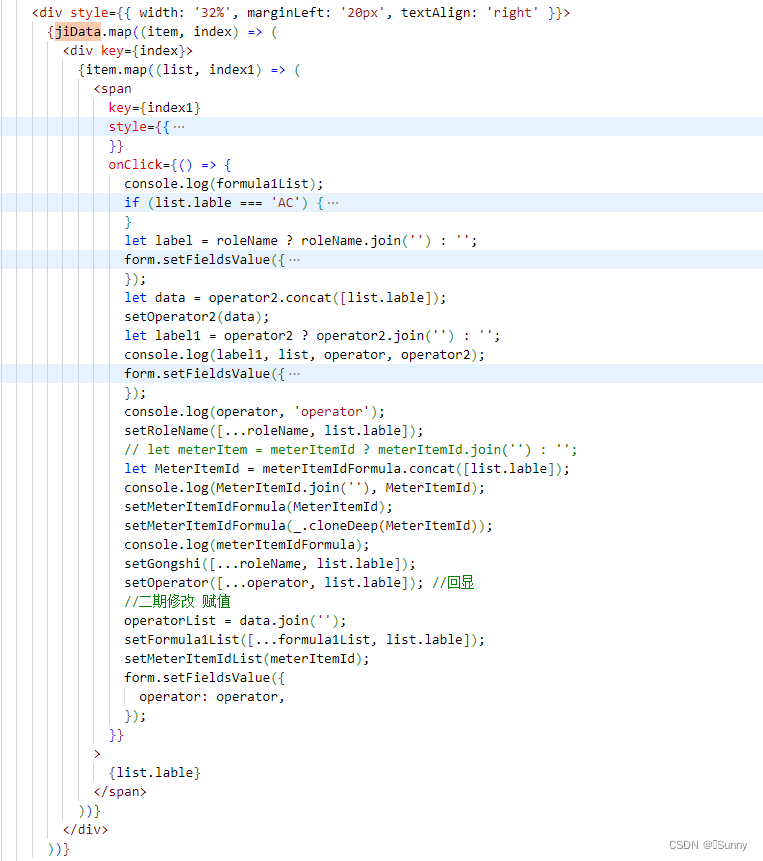
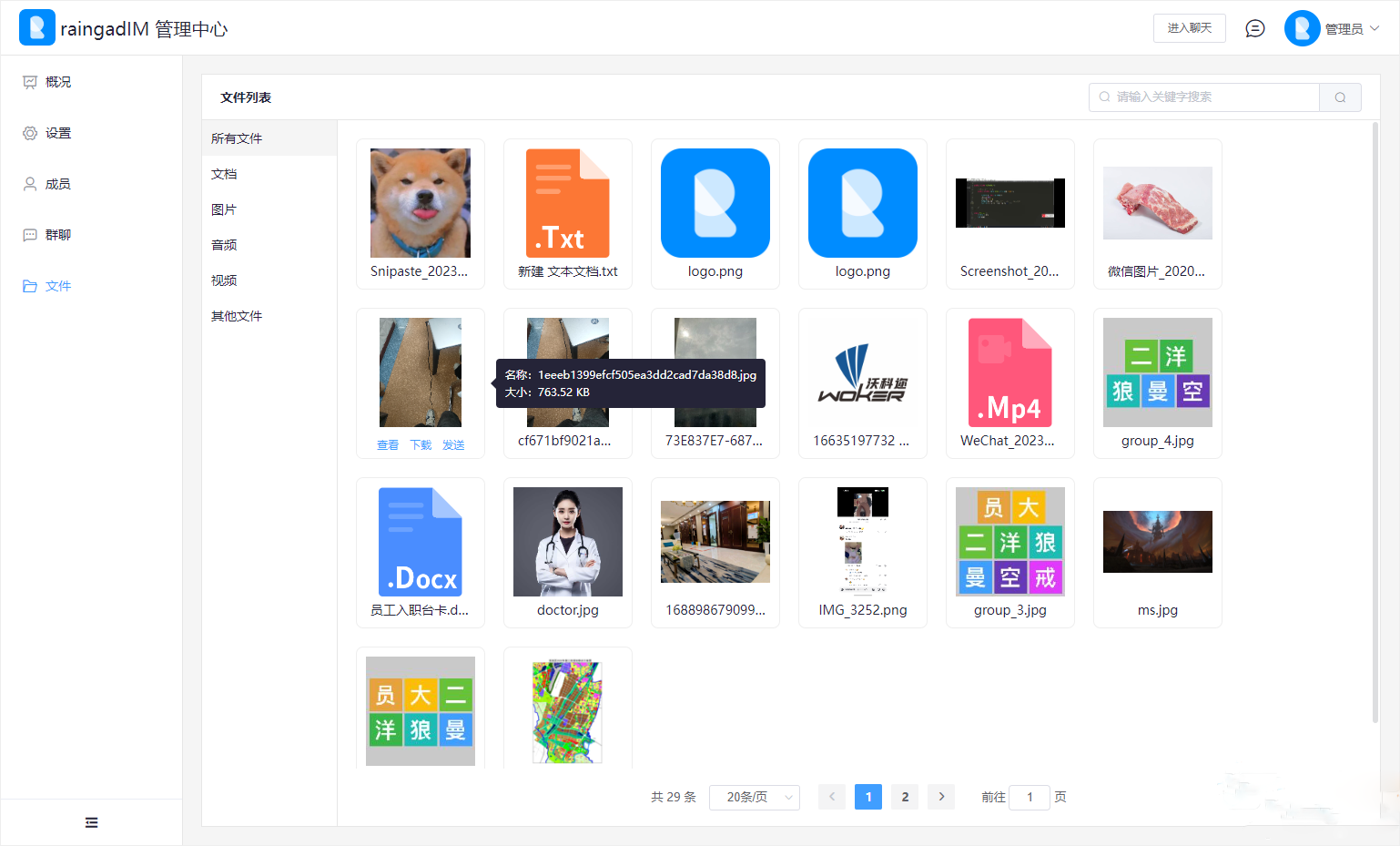

![[论文阅读]4DRadarSLAM: A 4D Imaging Radar SLAM System for Large-scale Environments](https://img-blog.csdnimg.cn/direct/197bb0d9c2934ff9a95a6d0c9aa13049.png)

